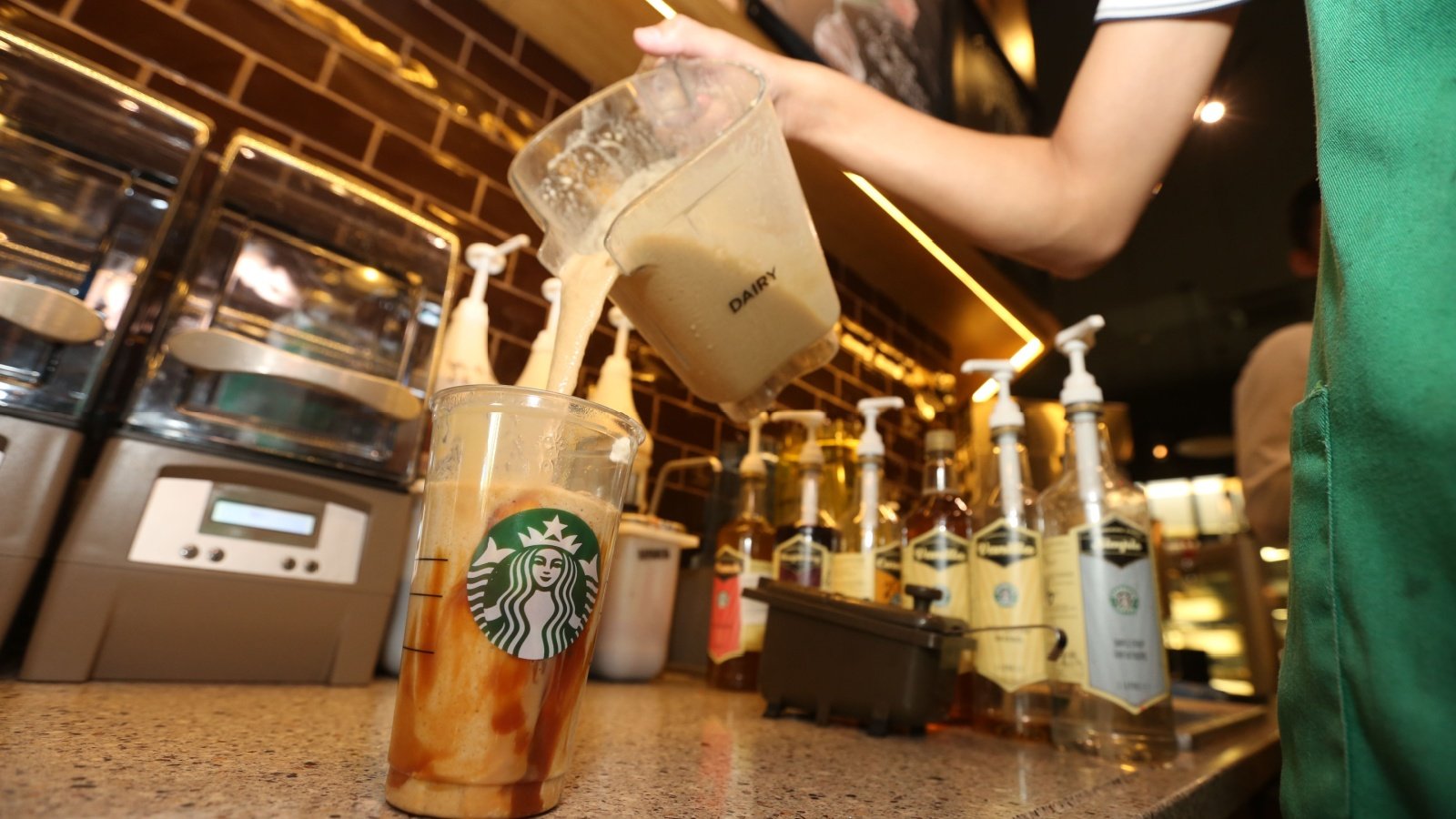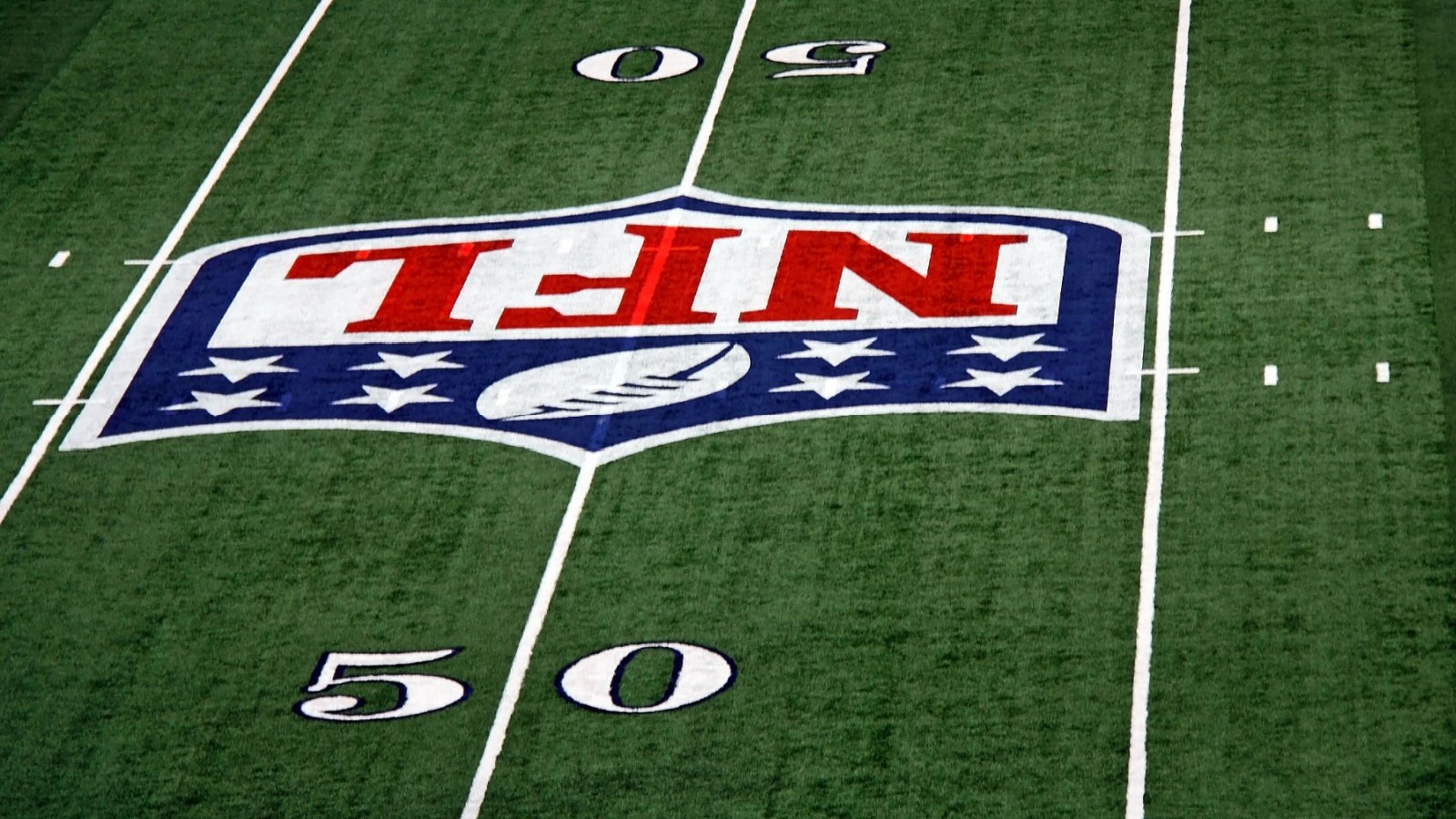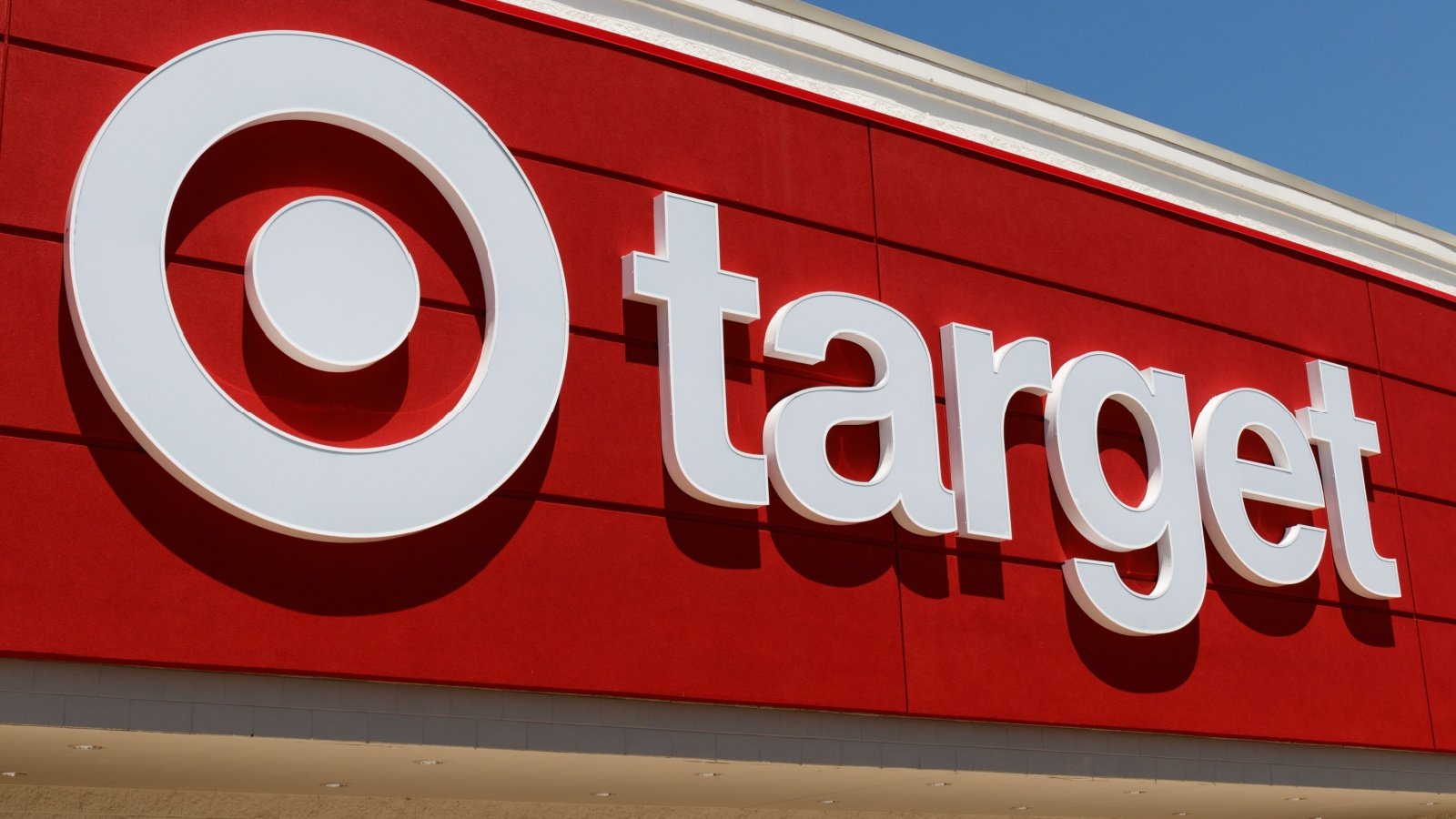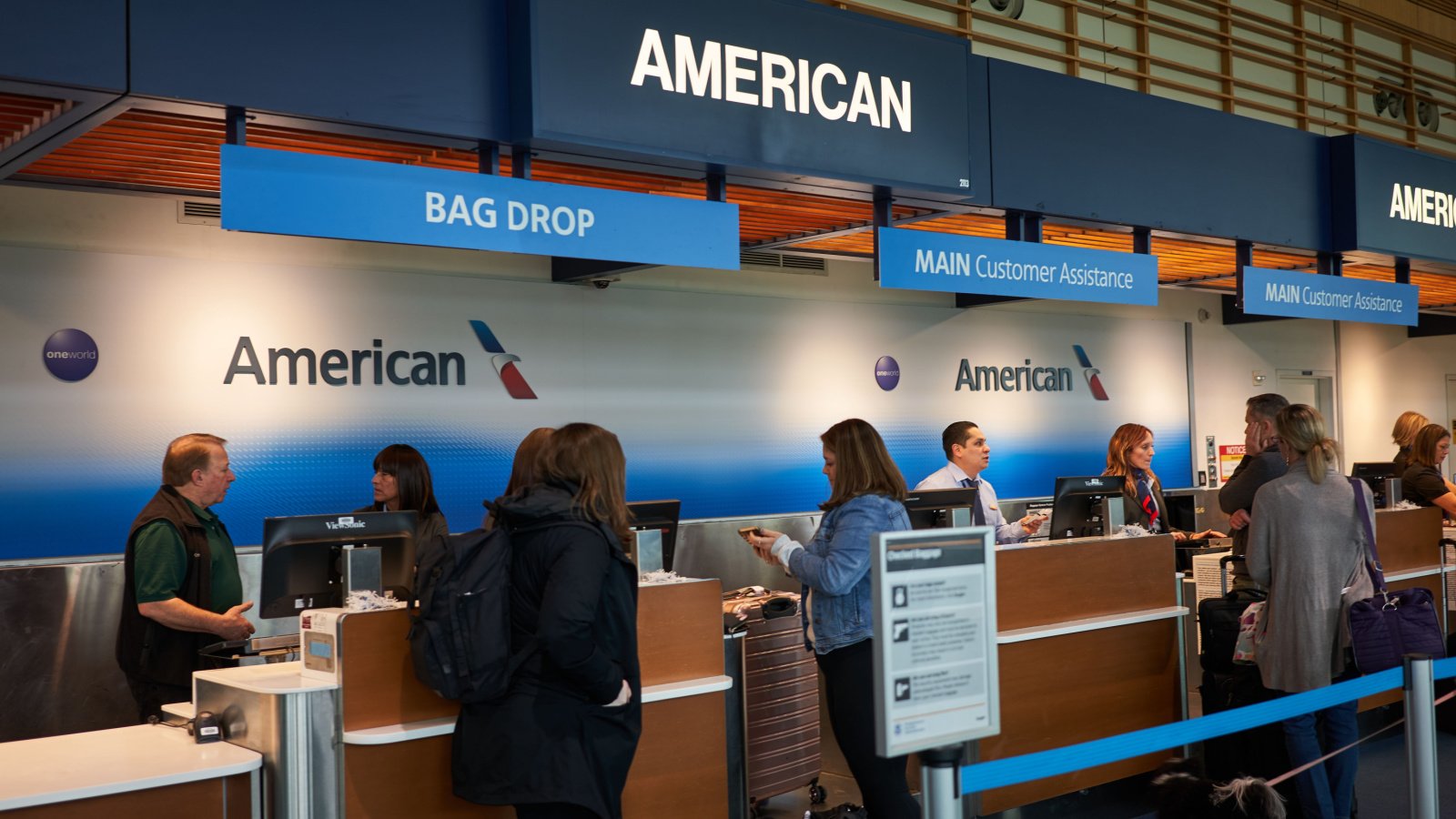Companies like Gillette and Pepsi faced major backlash after trying to get involved in modern social movements. The little understood complexities of ‘going woke’ shows that even big brands with good intentions can end up rubbing people the wrong way. Let’s look back at some of the worst marketing failures by name brands in recent years.
Gillette

Gillette’s 2019 ad campaign addressing toxic masculinity sparked a polarizing response from its customer base. While intended to promote positive behavior changes, it was perceived by many as accusatory towards its core male audience, leading to a notable backlash and reported financial losses. The brand struggled to balance social commentary with its established image.
Pepsi

In 2017, Pepsi attempted to tap into the social justice movement with an ad featuring Kendall Jenner offering a soda to a police officer during a protest, which was meant to evoke a message of unity. Instead, the ad was widely criticized for trivializing the complexities of race relations and protest movements, leading to a swift retraction and apology from the company.
Starbucks

Starbucks faced backlash after announcing in 2015 that baristas would start conversations about race with customers by writing “Race Together” on coffee cups. The initiative intended to promote racial unity but was met with criticism for being inappropriate and overly ambitious for a coffee chain setting. It was quickly discontinued after overwhelming negative feedback.
Nike

Nike’s decision to feature Colin Kaepernick, known for kneeling during the national anthem to protest racial injustice, as the face of their 30th-anniversary campaign was highly contentious. While the move solidified support among younger, more diverse consumers, it alienated a significant portion of its traditional customer base who viewed the protest as unpatriotic.
Dick’s Sporting Goods

In 2018, Dick’s Sporting Goods took a strong stance on gun control by announcing it would stop selling assault-style rifles and raise the minimum age for gun purchases to 21. This decision was met with both praise and intense boycotts from Second Amendment supporters, impacting sales and dividing its customer base.
Ben & Jerry’s

Ben & Jerry’s intense focus on issues like refugee rights and climate change has occasionally alienated customers who look for escapism rather than political messaging in their ice cream choices. The brand relies on the loyalty of consumers who share its values.
NFL

The NFL experienced significant viewership declines amid ongoing national anthem protests that it struggled to manage effectively. Attempts to please both sides—supporting players’ rights to protest while respecting the national anthem—resulted in a muddled response that satisfied few.
Target

Target announced a policy in 2016 that allowed transgender customers and employees to use the bathroom that corresponds to their gender identity. While aiming to be inclusive, the policy sparked a nationwide boycott by conservative groups, claiming it jeopardized customer safety.
Budweiser

In its 2017 Super Bowl commercial, Budweiser showcased its co-founder’s immigrant roots in a pro-immigration message. The ad, coming during heightened political debate on immigration policy, faced both praise and calls for boycotts from those opposed to its message.
Lush

Lush Cosmetics has long been vocal about environmentalism and animal rights, but it faced backlash when it took a strong stance against police corruption. Their campaign “Spycops,” which criticized undercover police operations, was deemed anti-police, causing uproar and calls for boycotts among those who felt it was a step too far.
H&M

H&M’s 2018 “Coolest Monkey in the Jungle” hoodie ad featuring a Black child sparked accusations of racism and insensitivity, leading to product withdrawals and celebrity denunciations. This incident highlighted the dangers of cultural tone-deafness in advertising.
NBA

The NBA faced criticism from multiple angles after initially hesitating to openly support or condemn Daryl Morey’s pro-Hong Kong tweet due to its business interests in China. The league’s attempt to straddle the line between supporting free speech and maintaining business relationships alienated fans and players alike.
Audi

During the 2017 Super Bowl, Audi aired a commercial promoting gender pay equality. While the message was broadly supported, the brand faced scrutiny when it was revealed that Audi’s executive team was predominantly male. The perceived hypocrisy dampened the campaign’s impact and highlighted the importance of aligning a brand’s message with its internal practices.
Chick-fil-A

Chick-fil-A’s longstanding donations to anti-LGBTQ organizations have sparked years of controversy and boycotts, significantly affecting its public image. Although it announced in 2019 that it would cease donations to such groups, the brand has struggled to shake its previous image.
Dropbox

Dropbox faced employee backlash and public scrutiny when it appointed former Secretary of State Condoleezza Rice to its board, given her involvement in the Iraq War and surveillance practices. The decision was seen as at odds with the tech community’s values around privacy.
Under Armour

Under Armour faced backlash when CEO Kevin Plank expressed support for President Trump’s pro-business approach, leading to a public outcry from customers who opposed the administration’s policies. This led to boycott threats and public disagreements from the brand’s sponsored athletes, reflecting a divide between the company’s management and its endorsers.
AT&T

AT&T encountered controversy with its public endorsement of the Equality Act, which aims to protect LGBTQ+ rights. Despite the intention to promote inclusivity, the move led to backlash from conservative consumer groups who viewed the stance as too politically charged.
Whole Foods

Whole Foods found itself at the center of controversy after it attempted to promote inclusivity by organizing a “Drag Queen Story Hour” at one of its locations. The event drew significant opposition from conservative groups, leading to protests and calls for boycotts.
American Airlines

American Airlines faced a customer boycott after tightening its policies on emotional support animals, which many passengers relied on for comfort during flights. The policy change, intended to ensure safety and comfort for all passengers, was seen by some as overly restrictive and insensitive to those with mental health needs.
Keurig

Keurig was caught in a crossfire of social media backlash after pulling advertising from a conservative news show, leading to calls for boycotts from viewers who supported the program. The brand initially aimed to remain neutral in a politically charged environment but ended up facing significant destruction of its products in protest.
Grubhub

Grubhub CEO’s post-election email to employees suggesting that those who supported discriminatory policies should resign sparked a public relations crisis, with accusations of intolerance and calls for a boycott. While intended to affirm the company’s commitment to diversity, the message was perceived as exclusionary.
Zara

Zara faced accusations of cultural appropriation and insensitivity after releasing a line of skirts that closely resembled a traditional African sarong without acknowledging the cultural significance. The backlash was swift, with critics arguing that Zara was exploiting cultural symbols for profit without proper respect or context.
Disney

Disney received criticism for its 2020 decision to add content warnings to classic films on its streaming platform that contain outdated or culturally insensitive depictions. While intended to address modern social sensitivities, the move angered some fans who saw it as an overreach and an attempt to revise history.









https://semaglupharm.shop/# Semaglu Pharm
Generic Crestor for high cholesterol: Crestor Pharm – CrestorPharm
prednisone 5mg daily [url=https://prednipharm.shop/#]PredniPharm[/url] prednisone buying
PredniPharm: PredniPharm – Predni Pharm
http://prednipharm.com/# PredniPharm
prednisone 5 tablets: prednisone 20mg online without prescription – Predni Pharm
CrestorPharm [url=https://crestorpharm.com/#]Best price for Crestor online USA[/url] Crestor Pharm
how long does it take semaglutide to get out of your system: п»їBuy Rybelsus online USA – Semaglu Pharm
buy prednisone online india: cost of prednisone in canada – Predni Pharm
Lipi Pharm [url=http://lipipharm.com/#]Lipi Pharm[/url] Lipi Pharm
lipitor and vitamin d3: Atorvastatin online pharmacy – difference between atorvastatin and pravastatin
https://semaglupharm.com/# Semaglutide tablets without prescription
Over-the-counter Crestor USA: Crestor Pharm – CrestorPharm
PredniPharm [url=http://prednipharm.com/#]how can i get prednisone online without a prescription[/url] where can you buy prednisone
prednisone prescription online: 5 mg prednisone daily – PredniPharm
rybelsus indications [url=https://semaglupharm.com/#]SemagluPharm[/url] SemagluPharm
prednisone 60 mg daily: Predni Pharm – prednisone 40 mg daily
https://lipipharm.shop/# can lipitor help you lose weight
Predni Pharm: buy prednisone 5mg canada – prednisone over the counter uk
Buy statins online discreet shipping [url=http://crestorpharm.com/#]Crestor Pharm[/url] CrestorPharm
Crestor Pharm: can rosuvastatin cause itching – CrestorPharm
semaglutide average weight loss: Semaglutide tablets without prescription – SemagluPharm
LipiPharm [url=https://lipipharm.shop/#]Lipi Pharm[/url] Lipi Pharm
PredniPharm: Predni Pharm – PredniPharm
PredniPharm: Predni Pharm – Predni Pharm
Crestor Pharm [url=https://crestorpharm.shop/#]Crestor mail order USA[/url] rx rosuvastatin 10mg
Rybelsus side effects and dosage: SemagluPharm – Rybelsus online pharmacy reviews
Predni Pharm: over the counter prednisone pills – PredniPharm
CrestorPharm [url=https://crestorpharm.com/#]Crestor Pharm[/url] CrestorPharm
Crestor Pharm: medication crestor – Rosuvastatin tablets without doctor approval
LipiPharm [url=https://lipipharm.shop/#]Lipi Pharm[/url] LipiPharm
http://prednipharm.com/# prednisone 50 mg for sale
Crestor Pharm: does crestor affect sleep – Crestor Pharm
Semaglu Pharm: Online pharmacy Rybelsus – Semaglu Pharm
Predni Pharm [url=http://prednipharm.com/#]buy prednisone from canada[/url] prednisone 50 mg canada
prednisone tabs 20 mg: PredniPharm – PredniPharm
Semaglu Pharm: SemagluPharm – Semaglu Pharm
how much does rosuvastatin cost [url=https://crestorpharm.shop/#]Crestor home delivery USA[/url] rosuvastatin vs lovastatin
https://semaglupharm.com/# Semaglutide tablets without prescription
Crestor Pharm: side effects of crestor 10 mg – Crestor home delivery USA
India Pharm Global: top online pharmacy india – India Pharm Global
Meds From Mexico [url=https://medsfrommexico.shop/#]Meds From Mexico[/url] Meds From Mexico
indian pharmacy: India Pharm Global – best india pharmacy
India Pharm Global: India Pharm Global – India Pharm Global
India Pharm Global [url=https://indiapharmglobal.com/#]India Pharm Global[/url] Online medicine home delivery
https://canadapharmglobal.com/# safe canadian pharmacy
mexican border pharmacies shipping to usa: п»їbest mexican online pharmacies – mexican mail order pharmacies
Meds From Mexico: mexican rx online – Meds From Mexico
India Pharm Global [url=http://indiapharmglobal.com/#]buy medicines online in india[/url] India Pharm Global
canadian drug pharmacy: Canada Pharm Global – safe canadian pharmacy
reliable canadian pharmacy: Canada Pharm Global – safe reliable canadian pharmacy
http://canadapharmglobal.com/# canada ed drugs
Meds From Mexico [url=https://medsfrommexico.shop/#]Meds From Mexico[/url] Meds From Mexico
Meds From Mexico: Meds From Mexico – Meds From Mexico
india online pharmacy: best online pharmacy india – mail order pharmacy india
reliable canadian online pharmacy [url=http://canadapharmglobal.com/#]Canada Pharm Global[/url] canadianpharmacymeds com
best canadian online pharmacy: Canada Pharm Global – best online canadian pharmacy
http://indiapharmglobal.com/# Online medicine home delivery
purple pharmacy mexico price list: mexican drugstore online – Meds From Mexico
Meds From Mexico [url=http://medsfrommexico.com/#]medicine in mexico pharmacies[/url] buying prescription drugs in mexico online
Meds From Mexico: Meds From Mexico – Meds From Mexico
online shopping pharmacy india: top 10 pharmacies in india – reputable indian online pharmacy
india pharmacy mail order: indian pharmacies safe – indianpharmacy com
canadian pharmacies comparison [url=https://canadapharmglobal.shop/#]canadian pharmacy oxycodone[/url] canadian neighbor pharmacy
Meds From Mexico: medication from mexico pharmacy – mexican border pharmacies shipping to usa
Meds From Mexico: medicine in mexico pharmacies – mexican online pharmacies prescription drugs
best rated canadian pharmacy [url=https://canadapharmglobal.shop/#]canadian pharmacy 24[/url] onlinecanadianpharmacy
Meds From Mexico: medication from mexico pharmacy – best online pharmacies in mexico
canadian pharmacy meds: Canada Pharm Global – safe canadian pharmacies
https://raskapotek.com/# vinsyre apotek
axil bambini forum: EFarmaciaIt – parafarmacia cosa vende
collagen piller [url=https://svenskapharma.com/#]vilka apotek vaccinerar mot tbe?[/url] Svenska Pharma
dandruff shampoo apotek: Rask Apotek – magnetarmbГҐnd apotek
Svenska Pharma: Svenska Pharma – Svenska Pharma
rensesjampo apotek: brekningsmiddel apotek – gurkemeie tabletter apotek
farmacia a domicilio cerca de mi [url=https://papafarma.com/#]Papa Farma[/url] Papa Farma
https://efarmaciait.shop/# amica farmacia shop online
EFarmaciaIt: EFarmaciaIt – slowmet 750 recensioni
efecto citrafleet: Papa Farma – Papa Farma
dir ofertas [url=https://papafarma.shop/#]Papa Farma[/url] elocom crema o pomada
ovixan crema neonati: farmacia costano – bentelan fiale si puГІ bere
Svenska Pharma [url=http://svenskapharma.com/#]termometer apotek[/url] hur vet man om yoghurt Г¤r dГҐlig
https://raskapotek.shop/# Rask Apotek
Svenska Pharma: Svenska Pharma – tandskydd apotek
EFarmaciaIt: brufen 600 mg 30 compresse prezzo – EFarmaciaIt
Svenska Pharma [url=https://svenskapharma.shop/#]Svenska Pharma[/url] Svenska Pharma
Rask Apotek: massasjekrem apotek – latexfri kondomer apotek
gГ¶ra egen saltvattenspray: Svenska Pharma – bestГ¤ll recept online
http://efarmaciait.com/# bijuva online
Svenska Pharma [url=https://svenskapharma.com/#]Svenska Pharma[/url] Svenska Pharma
EFarmaciaIt: EFarmaciaIt – EFarmaciaIt
vessel prezzo: EFarmaciaIt – EFarmaciaIt
Rask Apotek [url=http://raskapotek.com/#]stГёydempende Гёrepropper apotek[/url] nad tilskudd apotek
magebelte gravid apotek: fГёflekk sjekk apotek – voksen bleier apotek
Svenska Pharma: Svenska Pharma – magnesiumsulfat apotek
http://papafarma.com/# brentan crema como usar
cialis a cosa serve [url=https://efarmaciait.shop/#]alfatex unguento[/url] farmacie online autorizzate
Papa Farma: Papa Farma – farmacia gran vГa
Svenska Pharma: Svenska Pharma – Svenska Pharma
Svenska Pharma [url=https://svenskapharma.com/#]Svenska Pharma[/url] Svenska Pharma
farmaco prisma: EFarmaciaIt – EFarmaciaIt
EFarmaciaIt: flexiban 10 mg prezzo – allopurinolo equivalente
Rask Apotek [url=https://raskapotek.shop/#]Rask Apotek[/url] Rask Apotek
elocom opiniones: Papa Farma – epiduo forte espaГ±a
ГҐpent apotek sГёndag [url=https://raskapotek.shop/#]klГёpinne apotek[/url] castor oil apotek
farmacia lugo: vimovo 500 para que sirve – brentan crema opiniones
Rask Apotek: apotek no – Rask Apotek
http://papafarma.com/# precio movicol 20 sobres
ordonnance marocaine en france: Pharma Confiance – parapharmazen en ligne
Pharma Confiance: acheter de l’amoxicilline sans ordonnance – Pharma Confiance
medicijnen op recept [url=https://medicijnpunt.com/#]medicine online[/url] apotheek recept
Pharma Connect USA: price of cialis at pharmacy – spironolactone online pharmacy
PharmaConnectUSA: PharmaConnectUSA – Pharma Connect USA
http://medicijnpunt.com/# apotheke
Co-Amoxiclav [url=http://pharmaconnectusa.com/#]PharmaConnectUSA[/url] Pharma Connect USA
prix cariban: Pharma Confiance – pharmacie des fins
croquette lapsa avis: Pharma Confiance – Pharma Confiance
Medicijn Punt [url=https://medicijnpunt.com/#]MedicijnPunt[/url] MedicijnPunt
Medicijn Punt: MedicijnPunt – MedicijnPunt
https://medicijnpunt.shop/# Medicijn Punt
ativan online pharmacy: Pharma Connect USA – diuretics
belgie apotheek online [url=https://medicijnpunt.shop/#]Medicijn Punt[/url] holland apotheke
online apotheek zonder recept ervaringen: online medicijnen bestellen apotheek – Medicijn Punt
Pharma Jetzt: online apotheke versandkostenfrei – PharmaJetzt
thailand pharmacy online: PharmaConnectUSA – klonopin online pharmacy
wall drug store [url=http://pharmaconnectusa.com/#]best online cialis pharmacy[/url] Pharma Connect USA
https://pharmaconnectusa.com/# PharmaConnectUSA
cure oscillococcinum: viagra sans ordonnance en europe – Pharma Confiance
site pharmacie en ligne: Pharma Confiance – Pharma Confiance
PharmaJetzt [url=https://pharmajetzt.shop/#]PharmaJetzt[/url] Pharma Jetzt
apotheke online bestellen heute liefern: shopp apotheke – gГјnstige online apotheke
tapis salle de bain absorbant: traitement infection urinaire chat en pharmacie sans ordonnance – viagra sans ordonnance 24h belgique
PharmaJetzt [url=http://pharmajetzt.com/#]PharmaJetzt[/url] shop a
https://pharmaconfiance.shop/# Pharma Confiance
Pharma Jetzt: Pharma Jetzt – Pharma Jetzt
apotheker online: MedicijnPunt – MedicijnPunt
PharmaJetzt [url=https://pharmajetzt.com/#]online apotheke auf rechnung[/url] shop apitheke
PharmaConnectUSA: pharmacy viagra online – online pharmacy mexico
Pharma Confiance: Pharma Confiance – pharmacie ouverte aujourd’hui strasbourg
medicijnen zonder recept met ideal [url=http://medicijnpunt.com/#]Medicijn Punt[/url] MedicijnPunt
http://pharmajetzt.com/# apotheke shop online
online apitheke: mediherz shop – PharmaJetzt
Pharma Confiance: Pharma Confiance – creme fucidine prix
medicijnen kopen online [url=https://medicijnpunt.shop/#]Medicijn Punt[/url] Medicijn Punt
PharmaConnectUSA: cialis online uk pharmacy – proscar pharmacy online
Pharma Confiance: para pharma – parapharmie
shampoing so bio [url=https://pharmaconfiance.com/#]prix slinda[/url] meilleure crГЁme corps 60 millions consommateur
http://pharmaconfiance.com/# amoxicilline sirop enfant
Pharma Jetzt: apotrke – shopapptheke
medicijnen online bestellen: online apotheek – gratis verzending – pil online bestellen
faut il une ordonnance pour du viagra [url=https://pharmaconfiance.shop/#]amoxicilline poudre[/url] combien avons nous de cordes vocales
apotheek online nederland: dutch apotheek – MedicijnPunt
MedicijnPunt: farmacie medicijn – online apotheker
MedicijnPunt [url=http://medicijnpunt.com/#]medicijnen bestellen apotheek[/url] niederlande apotheke
PharmaJetzt: shop apotjeke – PharmaJetzt
PharmaJetzt: europaapotheek – online apotheke versand
http://medicijnpunt.com/# apotheke niederlande
PharmaJetzt: PharmaJetzt – Pharma Jetzt
erectile dysfunction: xeloda specialty pharmacy – Pharma Connect USA
MedicijnPunt: apteka nl online – mijn medicijnen bestellen
https://pharmaconfiance.shop/# tapis fleur de bach
pharmaciede: Pharma Confiance – quel pharmacie
Pharma Jetzt: internet apotheke bad steben – arznei online bestellen
arrow pharmacy my brand rx: ingles pharmacy – us pharmacy viagra prices
MedicijnPunt: inloggen apotheek – Medicijn Punt
https://pharmaconnectusa.com/# online pharmacy domperidone no prescription
MedicijnPunt: Medicijn Punt – apteka nl
viatris lyon: bleu de mГ©thylГЁne pharmacie en ligne – pharmacie en ligne fiable
aphotek: Pharma Jetzt – PharmaJetzt
Neurontin: atorvastatin online pharmacy – generic pharmacy online
http://pharmaconfiance.com/# monuril sans ordo
pharmacy online netherlands: aptoheek – MedicijnPunt
propecia malaysia pharmacy: publix pharmacy cephalexin – Pharma Connect USA
apotheke selbitz: Pharma Jetzt – online-apotheke top 10
Pharma Connect USA: bupropion xl online pharmacy – order prescriptions online without doctor
Pharma Connect USA: online pharmacy china – Pharma Connect USA
https://pharmaconfiance.shop/# Pharma Confiance
Pharma Confiance: pharmacie en ligne sans frais de port – Pharma Confiance
PharmaConnectUSA: Pharma Connect USA – viagra online pharmacy australia
Pharma Connect USA: nps online pharmacy reviews – Pharma Connect USA
pharmacy choice loratadine: Pharma Connect USA – most reliable online pharmacy viagra
http://medicijnpunt.com/# medicijnen aanvragen
Pharma Jetzt: apotheke im internet – medikamente liefern lassen
pharmacie de garde aujourd’hui rouen: fiГЁvre 24h aprГЁs une chute bГ©bГ© – Pharma Confiance
Medicijn Punt [url=http://medicijnpunt.com/#]wat is mijn apotheek[/url] apotgeek
24 hour pharmacy near me: PharmaConnectUSA – PharmaConnectUSA
Pharma Connect USA: Pharma Connect USA – Allopurinol
online apotheke versandkostenfrei [url=https://pharmajetzt.com/#]ship apotheke[/url] Pharma Jetzt
https://pharmaconnectusa.shop/# Pharma Connect USA
Pharma Confiance: commande pharmacie en ligne – Pharma Confiance
mexitil online pharmacy: Pharma Connect USA – Zithromax
versandapotheke versandkostenfrei: online apotheke pille danach – appotheke
apotheke online [url=https://pharmajetzt.shop/#]п»їonline apotheke[/url] internet apotheken
PharmaJetzt: PharmaJetzt – Pharma Jetzt
apotheke im internet: onlin apotheke – Pharma Jetzt
https://pharmaconfiance.shop/# Pharma Confiance
apotheken online: PharmaJetzt – Pharma Jetzt
Pharma Confiance: amoxicilline 100 mg Г partir de quel Гўge – Pharma Confiance
online medicijnen bestellen zonder recept [url=https://medicijnpunt.shop/#]online apotheek recept[/url] Medicijn Punt
online drugstore netherlands: farmacia online – MedicijnPunt
Pharma Jetzt: Pharma Jetzt – Pharma Jetzt
https://medicijnpunt.shop/# medicijnen op recept
Pharma Confiance [url=http://pharmaconfiance.com/#]Pharma Confiance[/url] ou acheter du viagra sur paris
Pharma Jetzt: PharmaJetzt – apothek online
mijn medicijn.nl: MedicijnPunt – Medicijn Punt
PharmaConnectUSA: PharmaConnectUSA – top online pharmacy 247
Pharma Confiance [url=http://pharmaconfiance.com/#]pharmacie de garde legГ©[/url] pharmacie de garde bruxelles
PharmaConnectUSA: Pharma Connect USA – anastrozole online pharmacy
MedicijnPunt: medicijnen online kopen – MedicijnPunt
http://medicijnpunt.com/# belgische online apotheek
PharmaConnectUSA: Pharma Connect USA – erection pills
Pharma Confiance [url=https://pharmaconfiance.shop/#]pharmacie en ligne 24 en france[/url] Pharma Confiance
magellan rx specialty pharmacy: klonopin online pharmacy reviews – Super ED Trial Pack
MedicijnPunt: Medicijn Punt – MedicijnPunt
pharmacy nl: Medicijn Punt – MedicijnPunt
PharmaJetzt [url=http://pharmajetzt.com/#]apotheke medikamente liefern[/url] die gГјnstigste online apotheke
Pharma Jetzt: PharmaJetzt – Pharma Jetzt
http://pharmaconfiance.com/# Pharma Confiance
legal to buy prescription drugs from canada: CanRx Direct – canadian pharmacy 365
escrow pharmacy canada: canada pharmacy 24h – pharmacy rx world canada
reputable canadian online pharmacy [url=http://canrxdirect.com/#]safe reliable canadian pharmacy[/url] canadian pharmacy in canada
IndiMeds Direct: IndiMeds Direct – world pharmacy india
http://tijuanameds.com/# TijuanaMeds
my canadian pharmacy: CanRx Direct – canadian pharmacy meds reviews
legit canadian online pharmacy [url=http://canrxdirect.com/#]CanRx Direct[/url] canadian pharmacy meds
canadian pharmacy world: CanRx Direct – canadian drugstore online
purple pharmacy mexico price list [url=https://tijuanameds.com/#]TijuanaMeds[/url] TijuanaMeds
TijuanaMeds: buying from online mexican pharmacy – TijuanaMeds
http://indimedsdirect.com/# india pharmacy mail order
TijuanaMeds: reputable mexican pharmacies online – TijuanaMeds
TijuanaMeds [url=http://tijuanameds.com/#]reputable mexican pharmacies online[/url] medicine in mexico pharmacies
best online canadian pharmacy: canadian pharmacies that deliver to the us – canadian pharmacies that deliver to the us
IndiMeds Direct: IndiMeds Direct – indian pharmacies safe
canadianpharmacyworld com [url=http://canrxdirect.com/#]CanRx Direct[/url] canadian pharmacy
https://tijuanameds.com/# TijuanaMeds
safe canadian pharmacy: CanRx Direct – northern pharmacy canada
TijuanaMeds [url=https://tijuanameds.com/#]TijuanaMeds[/url] TijuanaMeds
TijuanaMeds: mexico drug stores pharmacies – TijuanaMeds
legitimate canadian pharmacy: CanRx Direct – pharmacies in canada that ship to the us
sun rx pharmacy [url=http://rxfreemeds.com/#]med rx online pharmacy[/url] propecia pharmacy direct
https://enclomiphenebestprice.com/# enclomiphene
enclomiphene citrate: enclomiphene price – enclomiphene citrate
giant pharmacy store hours: RxFree Meds – RxFree Meds
recigarum comprar online: farmacia barata cordoba – linea 334 mallorca
RxFree Meds [url=https://rxfreemeds.shop/#]AebgMaite[/url] best generic viagra pharmacy
Farmacia Asequible: mg precio espaГ±a – Farmacia Asequible
http://enclomiphenebestprice.com/# buy enclomiphene online
Farmacia Asequible: Farmacia Asequible – Farmacia Asequible
levitra pharmacy coupon [url=https://rxfreemeds.shop/#]safeway pharmacy (inside safeway)[/url] RxFree Meds
parafarmacia que es: Farmacia Asequible – sobres movicol
RxFree Meds: RxFree Meds – online pharmacy sumatriptan
Farmacia Asequible [url=https://farmaciaasequible.shop/#]Farmacia Asequible[/url] farmacias de
Farmacia Asequible: Farmacia Asequible – Farmacia Asequible
http://rxfreemeds.com/# viagra spanish pharmacy
farmacia central online: parafarmacias baratas – Farmacia Asequible
Farmacia Asequible: farmacia 24h vigo – stock farmacia
enclomiphene price: buy enclomiphene online – enclomiphene buy
tu farmacia virtual [url=https://farmaciaasequible.shop/#]Farmacia Asequible[/url] farmacia cerca de mГ
enclomiphene testosterone: enclomiphene price – buy enclomiphene online
https://farmaciaasequible.com/# Farmacia Asequible
contigo en tu farmacia [url=https://farmaciaasequible.com/#]sensitive cbd murcia[/url] farmacis online
Verapamil: RxFree Meds – pharmacy store layout design
RxFree Meds [url=https://rxfreemeds.com/#]RxFree Meds[/url] accutane online pharmacy india
diprogenta precio comprar: ortopedia online barata – condoms in spanish
allegra pharmacy prices [url=https://rxfreemeds.com/#]spanish pharmacy online[/url] RxFree Meds
http://enclomiphenebestprice.com/# enclomiphene citrate
farmaciaa [url=http://farmaciaasequible.com/#]farmacia veterinaria cerca de mi[/url] Farmacia Asequible
enclomiphene buy: enclomiphene best price – enclomiphene for men
enclomiphene best price [url=http://enclomiphenebestprice.com/#]enclomiphene online[/url] enclomiphene
https://farmaciaasequible.shop/# tadalafilo online
Farmacia Asequible: Farmacia Asequible – Farmacia Asequible
Farmacia Asequible [url=http://farmaciaasequible.com/#]Farmacia Asequible[/url] farmacias abiertas hoy en zaragoza
wellbutrin xl pharmacy [url=http://rxfreemeds.com/#]RxFree Meds[/url] clomid online pharmacy uk
http://rxfreemeds.com/# RxFree Meds
Farmacia Asequible: farmacio – Farmacia Asequible
enclomiphene online [url=http://enclomiphenebestprice.com/#]buy enclomiphene online[/url] enclomiphene price
enclomiphene online [url=http://enclomiphenebestprice.com/#]enclomiphene for sale[/url] enclomiphene best price
tadalafilo 20 mg precio farmacia: comprar citrafleet 2 sobres – Farmacia Asequible
https://enclomiphenebestprice.com/# enclomiphene price
RxFree Meds [url=https://rxfreemeds.com/#]RxFree Meds[/url] RxFree Meds
enclomiphene citrate: enclomiphene online – enclomiphene for sale
Farmacia Asequible [url=https://farmaciaasequible.com/#]antimosquitos electrico[/url] Farmacia Asequible
http://rxfreemeds.com/# online cialis pharmacy reviews
enclomiphene citrate [url=http://enclomiphenebestprice.com/#]enclomiphene[/url] enclomiphene testosterone
Farmacia Asequible: farmacia online envГo gratis murcia – Farmacia Asequible
https://enclomiphenebestprice.com/# enclomiphene best price
enclomiphene citrate [url=https://enclomiphenebestprice.shop/#]enclomiphene online[/url] enclomiphene for sale
enclomiphene for sale: enclomiphene best price – enclomiphene best price
https://rxfreemeds.shop/# cheapest pharmacy to buy viagra
RxFree Meds [url=https://rxfreemeds.shop/#]RxFree Meds[/url] real pharmacy rx generic viagra
Farmacia Asequible [url=https://farmaciaasequible.com/#]movicol con receta[/url] codigo farmacia barata
enclomiphene: enclomiphene best price – enclomiphene for men
enclomiphene testosterone [url=https://enclomiphenebestprice.shop/#]enclomiphene online[/url] enclomiphene testosterone
https://rxfreemeds.shop/# percocet online pharmacy without prescriptions
RxFree Meds: RxFree Meds – ciprofloxacin online pharmacy
enclomiphene online [url=https://enclomiphenebestprice.shop/#]enclomiphene online[/url] enclomiphene buy
omeprazole online pharmacy: island pharmacy calcitriol – online pharmacy provigil
RxFree Meds: simvastatin uk pharmacy – viagra generic pharmacy online
Farmacia Asequible [url=https://farmaciaasequible.com/#]Farmacia Asequible[/url] Farmacia Asequible
https://rxfreemeds.com/# rx logo pharmacy
Farmacia Asequible: codigo farmacia barata – comprar cialis entrega rГЎpida
RxFree Meds [url=http://rxfreemeds.com/#]RxFree Meds[/url] RxFree Meds
Farmacia Asequible: ver cuГ©ntame como pasГі online gratis – producto parafarmaceutico
RxFree Meds: online pharmacy reviews generic viagra – clomid pharmacy prices
Farmacia Asequible [url=https://farmaciaasequible.com/#]Farmacia Asequible[/url] Farmacia Asequible
indian pharmacy paypal: world pharmacy india – IndoMeds USA
canadian pharmacies online: MediSmart Pharmacy – canadian mail order pharmacy
spironolactone online pharmacy no prescription [url=http://medismartpharmacy.com/#]thailand pharmacy kamagra[/url] rohypnol pharmacy
MexiMeds Express: buying prescription drugs in mexico online – purple pharmacy mexico price list
canadian pharmacy meds: MediSmart Pharmacy – canadian pharmacy world
http://indomedsusa.com/# top online pharmacy india
IndoMeds USA [url=https://indomedsusa.com/#]IndoMeds USA[/url] IndoMeds USA
IndoMeds USA: IndoMeds USA – IndoMeds USA
canadian pharmacy victoza: viagra direct pharmacy – buying from canadian pharmacies
zyrtec d behind pharmacy counter [url=https://medismartpharmacy.shop/#]MediSmart Pharmacy[/url] best pharmacy prices viagra
IndoMeds USA: top online pharmacy india – Online medicine home delivery
https://meximedsexpress.shop/# mexican online pharmacies prescription drugs
IndoMeds USA: IndoMeds USA – IndoMeds USA
rx express pharmacy stockton ca [url=https://medismartpharmacy.com/#]cetirizine pharmacy[/url] online pharmacy ventolin
mexico pharmacies prescription drugs: MexiMeds Express – MexiMeds Express
MexiMeds Express: MexiMeds Express – MexiMeds Express
target pharmacy augmentin [url=http://medismartpharmacy.com/#]MediSmart Pharmacy[/url] motilium inhouse pharmacy
prime rx pharmacy: MediSmart Pharmacy – cytotec malaysia pharmacy
https://medismartpharmacy.com/# cheap cialis online pharmacy
IndoMeds USA: best india pharmacy – india online pharmacy
online pharmacy prozac no prescription: ivermectin online pharmacy – kamagra online pharmacy
MexiMeds Express [url=https://meximedsexpress.com/#]MexiMeds Express[/url] mexican drugstore online
IndoMeds USA: india pharmacy mail order – IndoMeds USA
IndoMeds USA: IndoMeds USA – IndoMeds USA
buying prescription drugs in mexico online [url=http://meximedsexpress.com/#]MexiMeds Express[/url] mexican online pharmacies prescription drugs
https://medismartpharmacy.com/# viagra verified internet pharmacy practice sites
MexiMeds Express: mexican pharmaceuticals online – MexiMeds Express
Motilium: pharmacy online shopping usa – pharmacy viagra sans ordonnance
MexiMeds Express [url=https://meximedsexpress.shop/#]MexiMeds Express[/url] MexiMeds Express
india online pharmacy: IndoMeds USA – IndoMeds USA
online pharmacy in germany: pharmacy customer care viagra – viagra from indian pharmacy
mail order pharmacy india [url=http://indomedsusa.com/#]IndoMeds USA[/url] IndoMeds USA
http://indomedsusa.com/# IndoMeds USA
indian pharmacy online: indian pharmacy paypal – IndoMeds USA
buy medicines online in india: india online pharmacy – reputable indian pharmacies
diamox online pharmacy [url=https://medismartpharmacy.com/#]remedies rx pharmacy[/url] pharmacy artane roundabout
best canadian online pharmacy: can i buy viagra in pharmacy – canada ed drugs
reputable mexican pharmacies online: MexiMeds Express – mexico drug stores pharmacies
buying from online mexican pharmacy [url=https://meximedsexpress.shop/#]mexican online pharmacies prescription drugs[/url] MexiMeds Express
https://indomedsusa.shop/# IndoMeds USA
365 pharmacy kamagra: percocet pharmacy price – geodon online pharmacy
viagra certified pharmacy online [url=https://medismartpharmacy.shop/#]provigil pharmacy express[/url] best online pharmacy reddit
IndoMeds USA: Online medicine order – IndoMeds USA
MexiMeds Express [url=http://meximedsexpress.com/#]MexiMeds Express[/url] MexiMeds Express
Online medicine home delivery: indian pharmacies safe – Online medicine home delivery
MexiMeds Express [url=http://meximedsexpress.com/#]MexiMeds Express[/url] MexiMeds Express
https://meximedsexpress.shop/# MexiMeds Express
online pharmacy diovan: buy ambien us pharmacy – pharmacy rx one coupon codes
MexiMeds Express [url=http://meximedsexpress.com/#]MexiMeds Express[/url] mexican online pharmacies prescription drugs
co-op pharmacy viagra: MediSmart Pharmacy – which pharmacy is cheaper
accutane online pharmacy [url=https://medismartpharmacy.com/#]MediSmart Pharmacy[/url] xl pharmacy generic viagra
https://pharmadirecte.com/# spotof sans ordonnance
antistaminico kestine prezzo: xanax 1 mg rilascio prolungato – yasminelle prezzo
farmacia online valladolid [url=https://clinicagaleno.com/#]Clinica Galeno[/url] se puede comprar anticonceptivos sin receta
monuril sans ordonnance loi: estreva gel sans ordonnance – acheter kГ©toprofГЁne sans ordonnance
que medicamentos se pueden comprar sin receta [url=http://clinicagaleno.com/#]Clinica Galeno[/url] farmacia online para mascotas
https://clinicagaleno.shop/# comprar bactroban sin receta
vitamine a sans ordonnance: shampoing caudalie – eau de parfum caudalie
farmacia cavalieri shop online [url=https://clinicagaleno.com/#]andorra farmacia online[/url] fluoxetina se puede comprar sin receta
comprar mascarillas online farmacia: todo farmacia online – farmacia online prep
oferta farmacia online [url=http://clinicagaleno.com/#]Clinica Galeno[/url] comprar epinefrina sin receta
https://clinicagaleno.com/# farmacia online mas barata
peut on acheter de l’homГ©opathie sans ordonnance: PharmaDirecte – propecia prix
cialis 5 mg 28 compresse prezzo [url=https://ordinasalute.shop/#]bentelan 1 mg costo[/url] lavare i denti al cane in modo naturale
totalip 20: OrdinaSalute – farmacia madonnina
http://pharmadirecte.com/# fosfomycine avec ou sans ordonnance
pharmacie infection urinaire sans ordonnance [url=https://pharmadirecte.shop/#]finastГ©ride prix[/url] achat tadalafil 10 mg
farmacia online prezzi bassi: OrdinaSalute – netildex collirio monodose
http://ordinasalute.com/# coldetom monodose
commander sildenafil [url=https://pharmadirecte.shop/#]apranax sans ordonnance[/url] cialis 20mg price
gocce minias: cefodox bambini – diosmectal 30 bustine prezzo
http://tryggmed.com/# apotek hemoroider
digitale apotheek: apotheek inloggen – apteka internetowa holandia
ginseng apotek [url=http://tryggmed.com/#]halspastiller apotek[/url] flГҐtthalsbГҐnd hund apotek
https://zorgpakket.com/# medicijnen zonder recept met ideal
netherlands online pharmacy: Medicijn Punt – medicijnen op recept
https://tryggmed.com/# tГёrr hodebunn apotek
https://tryggmed.shop/# ispose apotek
jobba pГҐ apotek utbildning [url=https://snabbapoteket.com/#]Snabb Apoteket[/url] mina mediciner lista
online apotheek frankrijk: apotheken in holland – antibiotica kopen zonder recept
https://snabbapoteket.shop/# dygnet runt apotek
suspensorium apotek [url=http://tryggmed.com/#]TryggMed[/url] bihulebetennelse apotek
pharma apotheek: MedicijnPunt – online medicijnen
https://tryggmed.shop/# skalpell apotek
https://tryggmed.shop/# blodtrykksmåling apotek
apotek väteperoxid [url=https://snabbapoteket.com/#]SnabbApoteket[/url] yoga tillbehör rea
apteka holandia: pseudoephedrine kopen in nederland – farmacie medicijn
apotheek medicijnen [url=https://zorgpakket.shop/#]medicijnen bestellen bij apotheek[/url] apotheken nederland
apotek solkrГ¤m: Snabb Apoteket – vitamin d apotek
https://tryggmed.com/# narkotika test apotek
sura uppstötningar hjärtat [url=https://snabbapoteket.com/#]receptfria läkemedel mot inkontinens[/url] apotek väteperoxid
hГ¤mta recept online: SnabbApoteket – rea mammaklГ¤der
https://zorgpakket.shop/# farma
online pharmacy store in delhi [url=https://expresscarerx.online/#]ExpressCareRx[/url] ciprofloxacin online pharmacy
buy prescription drugs from india: best india pharmacy – indian pharmacy online
http://medimexicorx.com/# MediMexicoRx
https://medimexicorx.com/# MediMexicoRx
safe place to buy semaglutide online mexico: MediMexicoRx – trusted mexican pharmacy
reliable rx pharmacy coupons [url=https://expresscarerx.org/#]ExpressCareRx[/url] online pharmacy degree programs
https://medimexicorx.com/# buying from online mexican pharmacy
top online pharmacy india: world pharmacy india – IndiaMedsHub
buy medicines online in india: indian pharmacy paypal – india pharmacy mail order
https://indiamedshub.shop/# world pharmacy india
http://medimexicorx.com/# MediMexicoRx
indianpharmacy com [url=https://indiamedshub.shop/#]IndiaMedsHub[/url] world pharmacy india
https://medimexicorx.shop/# mexican border pharmacies shipping to usa
buy medicines online in india: IndiaMedsHub – best india pharmacy
IndiaMedsHub [url=http://indiamedshub.com/#]IndiaMedsHub[/url] india pharmacy
dubai viagra pharmacy: ExpressCareRx – princeton university store pharmacy
IndiaMedsHub [url=https://indiamedshub.com/#]pharmacy website india[/url] top 10 pharmacies in india
https://expresscarerx.online/# target pharmacy lexapro
mexico pharmacy: safe mexican online pharmacy – cheap mexican pharmacy
modafinil mexico online [url=https://medimexicorx.shop/#]MediMexicoRx[/url] gabapentin mexican pharmacy
MediMexicoRx: MediMexicoRx – safe place to buy semaglutide online mexico
diamox online pharmacy: buy provigil online pharmacy – boots pharmacy viagra cost
MediMexicoRx [url=https://medimexicorx.com/#]legit mexican pharmacy for hair loss pills[/url] MediMexicoRx
http://indiamedshub.com/# IndiaMedsHub
ExpressCareRx: vardenafil online pharmacy – legal online pharmacies in the us
IndiaMedsHub: top 10 pharmacies in india – IndiaMedsHub
buy propecia mexico [url=https://medimexicorx.shop/#]best prices on finasteride in mexico[/url] п»їmexican pharmacy
п»їmexican pharmacy: low cost mexico pharmacy online – buy from mexico pharmacy
order azithromycin mexico: order from mexican pharmacy online – buy cheap meds from a mexican pharmacy
IndiaMedsHub [url=https://indiamedshub.com/#]buy prescription drugs from india[/url] Online medicine order
http://medimexicorx.com/# mexican drugstore online
Lexapro for depression online: Lexapro for depression online – buy lexapro online without prescription
Cialis without prescription [url=http://tadalafilfromindia.com/#]generic Cialis from India[/url] tadalafil online no rx
https://isotretinoinfromcanada.shop/# generic isotretinoin
isotretinoin online: isotretinoin online – USA-safe Accutane sourcing
https://zoloft.company/# buy Zoloft online without prescription USA
cheap Accutane [url=https://isotretinoinfromcanada.shop/#]order isotretinoin from Canada to US[/url] cheap Accutane
Zoloft Company: Zoloft Company – buy Zoloft online without prescription USA
https://tadalafilfromindia.shop/# Cialis without prescription
isotretinoin online [url=https://isotretinoinfromcanada.shop/#]isotretinoin online[/url] order isotretinoin from Canada to US
Zoloft Company: buy Zoloft online without prescription USA – buy Zoloft online without prescription USA
Lexapro for depression online: Lexapro for depression online – Lexapro for depression online
cheap Cialis Canada [url=https://tadalafilfromindia.com/#]Cialis without prescription[/url] generic Cialis from India
tadalafil 20 mg mexico: buy Cialis online cheap – tadalafil 30
http://isotretinoinfromcanada.com/# purchase generic Accutane online discreetly
online tadalafil prescription: cheap Cialis Canada – Cialis without prescription
how much is lexapro in australia [url=https://lexapro.pro/#]lexapro brand name discount[/url] Lexapro for depression online
generic Finasteride without prescription: cheap Propecia Canada – Propecia for hair loss online
http://isotretinoinfromcanada.com/# buy Accutane online
how much is lexapro in australia: buy lexapro brand name online – Lexapro for depression online
purchase generic Accutane online discreetly [url=http://isotretinoinfromcanada.com/#]USA-safe Accutane sourcing[/url] purchase generic Accutane online discreetly
https://lexapro.pro/# Lexapro for depression online
tadalafil online no rx: generic Cialis from India – buy Cialis online cheap
https://zoloft.company/# Zoloft online pharmacy USA
Isotretinoin From Canada: Accutane for sale – cheap Accutane
cheap Propecia Canada [url=https://finasteridefromcanada.shop/#]cheap Propecia Canada[/url] generic Finasteride without prescription
cheap Propecia Canada: buying propecia – Finasteride From Canada
where can i purchase lexapro online [url=https://lexapro.pro/#]Lexapro for depression online[/url] Lexapro for depression online
http://finasteridefromcanada.com/# cheap Propecia Canada
buy Zoloft online without prescription USA: purchase generic Zoloft online discreetly – buy Zoloft online
https://tadalafilfromindia.shop/# buy Cialis online cheap
Cialis without prescription [url=http://tadalafilfromindia.com/#]tadalafil tablets 20 mg buy[/url] tadalafil online no rx
sertraline online: buy Zoloft online – sertraline online
http://isotretinoinfromcanada.com/# buy Accutane online
purchase generic Accutane online discreetly: order isotretinoin from Canada to US – order isotretinoin from Canada to US
Zoloft online pharmacy USA [url=https://zoloft.company/#]cheap Zoloft[/url] sertraline online
Tadalafil From India: cheap Cialis Canada – generic Cialis from India
https://lexapro.pro/# generic lexapro
Zoloft for sale: purchase generic Zoloft online discreetly – purchase generic Zoloft online discreetly
cheap Zoloft [url=https://zoloft.company/#]buy Zoloft online without prescription USA[/url] Zoloft online pharmacy USA
buy Accutane online: cheap Accutane – generic isotretinoin
http://tadalafilfromindia.com/# cheap Cialis Canada
https://lexapro.pro/# Lexapro for depression online
Finasteride From Canada [url=https://finasteridefromcanada.com/#]Finasteride From Canada[/url] order propecia without a prescription
tadalafil online no rx: buy tadalafil 5mg online – generic Cialis from India
Zoloft online pharmacy USA [url=https://zoloft.company/#]buy Zoloft online without prescription USA[/url] Zoloft for sale
Tadalafil From India: Cialis without prescription – generic Cialis from India
USA-safe Accutane sourcing [url=https://isotretinoinfromcanada.shop/#]order isotretinoin from Canada to US[/url] purchase generic Accutane online discreetly
generic sertraline: purchase generic Zoloft online discreetly – buy Zoloft online
https://finasteridefromcanada.com/# Finasteride From Canada
buy Zoloft online without prescription USA [url=https://zoloft.company/#]Zoloft Company[/url] buy Zoloft online without prescription USA
Propecia for hair loss online: cheap Propecia Canada – generic Finasteride without prescription
https://isotretinoinfromcanada.com/# Isotretinoin From Canada
generic Finasteride without prescription: propecia without rx – cheap Propecia Canada
Lexapro for depression online: lexapro online prescription – where to buy generic lexapro
http://neuroreliefrx.com/# NeuroRelief Rx
order Provigil without prescription: buy Modafinil online USA – WakeMedsRX
order corticosteroids without prescription: ReliefMeds USA – over the counter prednisone cream
NeuroRelief Rx [url=https://neuroreliefrx.shop/#]can stopping gabapentin cause insomnia[/url] gabapentin 300mg tablet
amoxicillin 500mg for sale uk: Clear Meds Direct – antibiotic treatment online no Rx
where buy clomid prices: clomid without insurance – Clomid Hub Pharmacy
https://clearmedsdirect.shop/# amoxicillin 30 capsules price
how can i get generic clomid price [url=https://clomidhubpharmacy.shop/#]Clomid Hub Pharmacy[/url] get cheap clomid without insurance
cheap clomid without insurance: can you buy clomid no prescription – Clomid Hub Pharmacy
Relief Meds USA: ReliefMeds USA – canadian online pharmacy prednisone
amoxicillin 750 mg price: amoxicillin pharmacy price – Clear Meds Direct
NeuroRelief Rx [url=http://neuroreliefrx.com/#]NeuroRelief Rx[/url] NeuroRelief Rx
Clear Meds Direct: amoxicillin generic – amoxicillin 500 capsule
gabapentin 100mg gre: is gabapentin good for tooth pain – NeuroRelief Rx
https://neuroreliefrx.com/# gabapentin safe dose
smart drugs online US pharmacy [url=https://wakemedsrx.shop/#]prescription-free Modafinil alternatives[/url] wakefulness medication online no Rx
Clomid Hub Pharmacy: Clomid Hub – Clomid Hub Pharmacy
anti-inflammatory steroids online: anti-inflammatory steroids online – ReliefMeds USA
nootropic Modafinil shipped to USA: buy Modafinil online USA – order Provigil without prescription
can i buy clomid without a prescription [url=https://clomidhubpharmacy.com/#]where can i buy clomid without a prescription[/url] cost clomid no prescription
Modafinil for focus and productivity: prescription-free Modafinil alternatives – WakeMeds RX
https://reliefmedsusa.shop/# anti-inflammatory steroids online
gabapentin tablet [url=https://neuroreliefrx.com/#]to buy gabapentin 600 mg[/url] can you buy gabapentin
Relief Meds USA: anti-inflammatory steroids online – anti-inflammatory steroids online
NeuroRelief Rx: gabapentin route of elimination – can gabapentin expire
Wake Meds RX [url=https://wakemedsrx.shop/#]buy Modafinil online USA[/url] WakeMeds RX
anti-inflammatory steroids online: Relief Meds USA – prednisone 40mg
Relief Meds USA: anti-inflammatory steroids online – anti-inflammatory steroids online
NeuroRelief Rx [url=https://neuroreliefrx.com/#]NeuroRelief Rx[/url] is gabapentin safe in pregnancy
https://reliefmedsusa.com/# Relief Meds USA
Clomid Hub Pharmacy: where can i get cheap clomid price – order cheap clomid for sale
antibiotic treatment online no Rx [url=https://clearmedsdirect.com/#]ClearMeds Direct[/url] order amoxicillin without prescription
prednisone 10mg buy online: anti-inflammatory steroids online – order corticosteroids without prescription
WakeMedsRX: Wake Meds RX – prescription-free Modafinil alternatives
gabapentin results [url=https://neuroreliefrx.com/#]NeuroRelief Rx[/url] NeuroRelief Rx
purchase prednisone canada: Relief Meds USA – Relief Meds USA
http://neuroreliefrx.com/# gabapentin hangover
Clomid Hub: Clomid Hub Pharmacy – can you buy generic clomid for sale
Clomid Hub [url=http://clomidhubpharmacy.com/#]Clomid Hub[/url] can you get clomid
anti-inflammatory steroids online: Relief Meds USA – ReliefMeds USA
low-cost antibiotics delivered in USA: Clear Meds Direct – amoxil generic
Relief Meds USA: order corticosteroids without prescription – anti-inflammatory steroids online
anti-inflammatory steroids online: anti-inflammatory steroids online – Relief Meds USA
https://wakemedsrx.shop/# Modafinil for focus and productivity
gabapentin katze dosierung: can i take gabapentin with seroquel – NeuroRelief Rx
CanadRx Nexus: canada drugs reviews – certified canadian international pharmacy
mail order pharmacy india: buy medicines online in india – IndiGenix Pharmacy
https://canadrxnexus.com/# CanadRx Nexus
MexiCare Rx Hub: order from mexican pharmacy online – isotretinoin from mexico
MexiCare Rx Hub: MexiCare Rx Hub – MexiCare Rx Hub
http://canadrxnexus.com/# canadian mail order pharmacy
reliable canadian pharmacy: CanadRx Nexus – canadian pharmacy store
mail order pharmacy india: world pharmacy india – IndiGenix Pharmacy
IndiGenix Pharmacy: top 10 pharmacies in india – reputable indian pharmacies
CanadRx Nexus: CanadRx Nexus – CanadRx Nexus
reputable indian pharmacies: indian pharmacy paypal – IndiGenix Pharmacy
medication from mexico pharmacy: medication from mexico pharmacy – mexico drug stores pharmacies
reliable canadian pharmacy: canadian neighbor pharmacy – CanadRx Nexus
MexiCare Rx Hub: buy viagra from mexican pharmacy – get viagra without prescription from mexico
MexiCare Rx Hub: MexiCare Rx Hub – mexican mail order pharmacies
CanadRx Nexus: CanadRx Nexus – CanadRx Nexus
india online pharmacy: indianpharmacy com – indian pharmacy online
india pharmacy mail order: IndiGenix Pharmacy – IndiGenix Pharmacy
IndiGenix Pharmacy: mail order pharmacy india – best online pharmacy india
best canadian pharmacy: adderall canadian pharmacy – canadian pharmacy world reviews
https://indigenixpharm.shop/# IndiGenix Pharmacy
mexican pharmacy for americans: MexiCare Rx Hub – MexiCare Rx Hub
IndiGenix Pharmacy: IndiGenix Pharmacy – IndiGenix Pharmacy
IndiGenix Pharmacy: IndiGenix Pharmacy – IndiGenix Pharmacy
MexiCare Rx Hub: MexiCare Rx Hub – order azithromycin mexico
CanadRx Nexus: CanadRx Nexus – 77 canadian pharmacy
https://ivercarepharmacy.shop/# IverCare Pharmacy
cheap muscle relaxer online USA: Tizanidine tablets shipped to USA – muscle relaxants online no Rx
FluidCare Pharmacy [url=https://fluidcarepharmacy.shop/#]FluidCare Pharmacy[/url] lasix tablet
tractor supply ivermectin paste: ivermectin equine – ivermectin for mites
order Tizanidine without prescription [url=https://relaxmedsusa.com/#]RelaxMeds USA[/url] relief from muscle spasms online
lasix online: FluidCare Pharmacy – lasix medication
https://ivercarepharmacy.shop/# IverCare Pharmacy
ventolin price: buying ventolin in usa – ventolin evohaler
IverCare Pharmacy [url=http://ivercarepharmacy.com/#]stromectol dosage[/url] IverCare Pharmacy
cheap muscle relaxer online USA: Zanaflex medication fast delivery – Tizanidine 2mg 4mg tablets for sale
IverCare Pharmacy: IverCare Pharmacy – IverCare Pharmacy
FluidCare Pharmacy: furosemide – FluidCare Pharmacy
IverCare Pharmacy [url=https://ivercarepharmacy.com/#]IverCare Pharmacy[/url] IverCare Pharmacy
AsthmaFree Pharmacy: AsthmaFree Pharmacy – semaglutide 10 units
prescription-free muscle relaxants: RelaxMedsUSA – prescription-free muscle relaxants
http://relaxmedsusa.com/# RelaxMeds USA
purchase ventolin inhaler [url=http://asthmafreepharmacy.com/#]ventolin 50 mg[/url] AsthmaFree Pharmacy
RelaxMedsUSA: relief from muscle spasms online – buy Zanaflex online USA
AsthmaFree Pharmacy: ventolin 4mg uk – buy cheap ventolin
safe online source for Tizanidine [url=https://relaxmedsusa.shop/#]cheap muscle relaxer online USA[/url] RelaxMedsUSA
buy ventolin online uk: AsthmaFree Pharmacy – AsthmaFree Pharmacy
https://asthmafreepharmacy.com/# buy ventolin over the counter with paypal
AsthmaFree Pharmacy [url=https://asthmafreepharmacy.shop/#]AsthmaFree Pharmacy[/url] AsthmaFree Pharmacy
AsthmaFree Pharmacy: generic ventolin – AsthmaFree Pharmacy
FluidCare Pharmacy: lasix uses – furosemide 40mg
rybelsus weight loss before and after pictures [url=http://glucosmartrx.com/#]AsthmaFree Pharmacy[/url] AsthmaFree Pharmacy
AsthmaFree Pharmacy: ventolin tablets – how much is ventolin in canada
can i buy ventolin over the counter australia: buy ventolin online australia – AsthmaFree Pharmacy
AsthmaFree Pharmacy [url=https://asthmafreepharmacy.shop/#]AsthmaFree Pharmacy[/url] cost ventolin australia
http://ivercarepharmacy.com/# ivermectin pill
rybelsus?: AsthmaFree Pharmacy – semaglutide and thyroid
AsthmaFree Pharmacy: buy ventolin online cheap – AsthmaFree Pharmacy
ventolin australia prescription: ventolin buy – order ventolin online
FluidCare Pharmacy [url=https://fluidcarepharmacy.com/#]furosemide[/url] lasix 20 mg
trusted pharmacy Zanaflex USA: affordable Zanaflex online pharmacy – RelaxMeds USA
http://glucosmartrx.com/# is rybelsus fda approved for weight loss
buy Zanaflex online USA [url=https://relaxmedsusa.com/#]RelaxMeds USA[/url] relief from muscle spasms online
ventolin tablets 4mg: AsthmaFree Pharmacy – AsthmaFree Pharmacy
IverCare Pharmacy [url=http://ivercarepharmacy.com/#]IverCare Pharmacy[/url] side effects of ivermectin in humans
ivermectin toxicity dog: IverCare Pharmacy – ivermectin coronavirus
https://ivercarepharmacy.com/# ivermectin 3mg dose
cheap muscle relaxer online USA [url=http://relaxmedsusa.com/#]muscle relaxants online no Rx[/url] affordable Zanaflex online pharmacy
1% ivermectin: IverCare Pharmacy – ivermectin tablet 12mg
AsthmaFree Pharmacy [url=http://glucosmartrx.com/#]AsthmaFree Pharmacy[/url] AsthmaFree Pharmacy
FluidCare Pharmacy: FluidCare Pharmacy – FluidCare Pharmacy
AsthmaFree Pharmacy: AsthmaFree Pharmacy – diabetes drug rybelsus
https://relaxmedsusa.com/# relief from muscle spasms online
FluidCare Pharmacy: furosemida – FluidCare Pharmacy
AsthmaFree Pharmacy [url=https://glucosmartrx.com/#]rybelsus when to take[/url] why does semaglutide make you tired
FluidCare Pharmacy: furosemide 100 mg – lasix generic name
Link alternatif Abutogel [url=https://abutowin.icu/#]Bandar togel resmi Indonesia[/url] Abutogel login
Pinco il? real pul qazan: Onlayn kazino Az?rbaycan – Pinco kazino
https://betawinindo.top/# Link alternatif Beta138
Pinco casino mobil t?tbiq: Uduslar? tez c?xar Pinco il? – Qeydiyyat bonusu Pinco casino
maglaro ng Jiliko online sa Pilipinas: Jiliko app – Jiliko slots
Link vao GK88 m?i nh?t [url=https://gkwinviet.company/#]Slot game d?i thu?ng[/url] Slot game d?i thu?ng
Kazino bonuslar? 2025 Az?rbaycan: Qeydiyyat bonusu Pinco casino – Onlayn rulet v? blackjack
Bandar togel resmi Indonesia: Abutogel login – Abutogel login
https://pinwinaz.pro/# Yuks?k RTP slotlar
Pinco kazino [url=https://pinwinaz.pro/#]Qeydiyyat bonusu Pinco casino[/url] Pinco r?smi sayt
Jiliko casino walang deposit bonus para sa Pinoy: Jiliko casino walang deposit bonus para sa Pinoy – jilwin
Swerte99 bonus: Swerte99 casino – Swerte99 slots
Pinco casino mobil t?tbiq: Uduslar? tez c?xar Pinco il? – Kazino bonuslar? 2025 Az?rbaycan
Rut ti?n nhanh GK88 [url=https://gkwinviet.company/#]Casino online GK88[/url] GK88
Swerte99: Swerte99 app – Swerte99 bonus
https://gkwinviet.company/# Rut ti?n nhanh GK88
Promo slot gacor hari ini [url=https://betawinindo.top/#]Withdraw cepat Beta138[/url] Link alternatif Beta138
Live casino Mandiribet: Situs judi online terpercaya Indonesia – Situs judi online terpercaya Indonesia
Login Beta138: Beta138 – Promo slot gacor hari ini
Link vao GK88 m?i nh?t [url=https://gkwinviet.company/#]Link vao GK88 m?i nh?t[/url] Nha cai uy tin Vi?t Nam
Swerte99 slots: Swerte99 online gaming Pilipinas – Swerte99 online gaming Pilipinas
Onlayn kazino Az?rbaycan: Onlayn kazino Az?rbaycan – Pinco il? real pul qazan
https://betawinindo.top/# Bandar bola resmi
Swerte99 casino walang deposit bonus para sa Pinoy [url=https://swertewin.life/#]Swerte99 login[/url] Swerte99 login
Situs togel online terpercaya: Link alternatif Abutogel – Situs togel online terpercaya
jollibet login [url=https://1winphili.company/#]Online gambling platform Jollibet[/url] Online casino Jollibet Philippines
Tro choi n? hu GK88: Link vao GK88 m?i nh?t – Tro choi n? hu GK88
https://swertewin.life/# Swerte99 app
Link alternatif Mandiribet: Situs judi resmi berlisensi – Judi online deposit pulsa
Slot gacor Beta138: Bonus new member 100% Beta138 – Bandar bola resmi
Swerte99 casino walang deposit bonus para sa Pinoy [url=https://swertewin.life/#]Swerte99 app[/url] Swerte99 slots
Uduslar? tez c?xar Pinco il?: Pinco il? real pul qazan – Canl? krupyerl? oyunlar
Link alternatif Mandiribet: Bonus new member 100% Mandiribet – Bonus new member 100% Mandiribet
MediDirect USA [url=https://medidirectusa.com/#]MediDirect USA[/url] Super ED Trial Pack
https://medidirectusa.shop/# MediDirect USA
Mexican Pharmacy Hub: Mexican Pharmacy Hub – Mexican Pharmacy Hub
top online pharmacy india: Indian Meds One – india pharmacy mail order
Mexican Pharmacy Hub [url=https://mexicanpharmacyhub.com/#]safe mexican online pharmacy[/url] Mexican Pharmacy Hub
indian pharmacies safe: Indian Meds One – best online pharmacy india
Mexican Pharmacy Hub: Mexican Pharmacy Hub – Mexican Pharmacy Hub
reliable rx pharmacy coupon code: MediDirect USA – MediDirect USA
https://mexicanpharmacyhub.shop/# п»їbest mexican online pharmacies
mail order pharmacy india [url=http://indianmedsone.com/#]Indian Meds One[/url] Indian Meds One
MediDirect USA: buy amoxicillin no prescription fda checked pharmacy – ez pharmacy
Indian Meds One: Indian Meds One – best india pharmacy
Mexican Pharmacy Hub [url=https://mexicanpharmacyhub.shop/#]best prices on finasteride in mexico[/url] Mexican Pharmacy Hub
pharmacy website india: indian pharmacy online – indian pharmacy paypal
http://medidirectusa.com/# enalapril online pharmacy
best online propecia pharmacy [url=https://medidirectusa.com/#]remote consultation online pharmacy[/url] permethrin uk pharmacy
http://medidirectusa.com/# MediDirect USA
cheap cialis mexico [url=http://mexicanpharmacyhub.com/#]buy viagra from mexican pharmacy[/url] safe place to buy semaglutide online mexico
Mexican Pharmacy Hub [url=https://mexicanpharmacyhub.com/#]gabapentin mexican pharmacy[/url] trusted mexico pharmacy with US shipping
http://mexicanpharmacyhub.com/# Mexican Pharmacy Hub
Indian Meds One [url=https://indianmedsone.com/#]Indian Meds One[/url] pharmacy website india
Sildenafil oral jelly fast absorption effect: KamaMeds – Online sources for Kamagra in the United States
http://kamameds.com/# Affordable sildenafil citrate tablets for men
Kamagra reviews from US customers: Affordable sildenafil citrate tablets for men – Kamagra oral jelly USA availability
Tadalify: canadian no prescription pharmacy cialis – Tadalify
https://sildenapeak.com/# SildenaPeak
where to buy cialis cheap: cialis how does it work – Tadalify
Tadalify: Tadalify – tadalafil liquid review
cialis for pulmonary hypertension: cialis without prescription – Tadalify
Tadalify: cialis 2.5 mg – how long before sex should i take cialis
http://sildenapeak.com/# buy viagra generic online
can i get viagra without a prescription: SildenaPeak – SildenaPeak
cialis side effects heart: Tadalify – side effects cialis
https://kamameds.com/# Kamagra reviews from US customers
sildenafil 100 mg tablets coupon: SildenaPeak – SildenaPeak
https://kamameds.shop/# Men’s sexual health solutions online
natural cialis: Tadalify – buy cialis free shipping
http://kamameds.com/# Kamagra reviews from US customers
https://sildenapeak.com/# SildenaPeak
https://tadalify.com/# Tadalify
lasix 100mg: lasix furosemide 40 mg – CardioMeds Express
https://ferticareonline.shop/# buy generic clomid no prescription
SteroidCare Pharmacy: SteroidCare Pharmacy – SteroidCare Pharmacy
TrustedMeds Direct: TrustedMeds Direct – where to buy amoxicillin 500mg
IverGrove [url=https://ivergrove.com/#]IverGrove[/url] IverGrove
https://cardiomedsexpress.shop/# lasix furosemide
amoxicillin 775 mg: TrustedMeds Direct – amoxicillin 500 mg for sale
FertiCare Online [url=https://ferticareonline.shop/#]FertiCare Online[/url] can i order generic clomid price
CardioMeds Express: CardioMeds Express – CardioMeds Express
top farmacia online [url=https://pillolesubito.shop/#]farmacie online sicure[/url] Farmacia online piГ№ conveniente
viagra pfizer 25mg prezzo: PotenzaFacile – viagra naturale
https://potenzafacile.com/# viagra originale in 24 ore contrassegno
https://farmacidiretti.shop/# farmacia online piГ№ conveniente
https://bharatmedsdirect.shop/# BharatMeds Direct
http://maplemedsdirect.com/# MapleMeds Direct
MapleMeds Direct: MapleMeds Direct – steroids online pharmacy
MapleMeds Direct: india pharmacy propecia – MapleMeds Direct
https://maplemedsdirect.shop/# MapleMeds Direct
MapleMeds Direct: MapleMeds Direct – clomid online pharmacy
BorderMeds Express: BorderMeds Express – mexican rx online
https://bordermedsexpress.shop/# BorderMeds Express
indian pharmacy paypal: indian pharmacy paypal – BharatMeds Direct
retail pharmacy price cialis: buy viagra uk pharmacy – nexium mexico pharmacy
https://1wstarburst.shop/# giocare da mobile a Starburst
1win888indonesia: garuda888 login resmi tanpa ribet – garuda888 login resmi tanpa ribet
https://1wbona.shop/# bonaslot login
https://1wbook.com/# Book of Ra Deluxe slot online Italia
http://1wbona.com/# bonaslot kasino online terpercaya
http://clearmedspharm.com/# ClearMeds Pharmacy
betawi 77 slot: betawi77 link alternatif – betawi 777
batarabet [url=https://mez.ink/batarabet#]batara88[/url] batara vip
mawartoto alternatif: mawartoto link – mawartoto
batara vip [url=https://mez.ink/batarabet#]situs slot batara88[/url] batarabet alternatif
betawi 777: betawi77 link alternatif – betawi77
betawi77 net [url=https://linkr.bio/betawi777#]betawi 77 slot[/url] betawi77 net
kratonbet alternatif: kratonbet – kratonbet login
EverGreenRx USA: EverGreenRx USA – EverGreenRx USA
EverGreenRx USA: cialis reviews – cialis in las vegas
http://evergreenrxusas.com/# tamsulosin vs. tadalafil
EverGreenRx USA: EverGreenRx USA – EverGreenRx USA
can i take two 5mg cialis at once: cialis 40 mg reviews – generic tadalafil 40 mg
http://evergreenrxusas.com/# EverGreenRx USA
EverGreenRx USA: cialis coupon 2019 – EverGreenRx USA
EverGreenRx USA: EverGreenRx USA – cheap cialis online overnight shipping
BluePillUK https://meditrustuk.shop/# generic stromectol UK delivery
ivermectin cheap price online UK: ivermectin cheap price online UK – stromectol pills home delivery UK
https://bluepilluk.shop/# BluePillUK
order medicines online discreetly: order medicines online discreetly – cheap UK online pharmacy
https://intimacareuk.shop/# cialis online UK no prescription
BluePill UK https://meditrustuk.shop/# ivermectin without prescription UK
buy ED pills online discreetly UK: cialis cheap price UK delivery – buy ED pills online discreetly UK
https://bluepilluk.shop/# viagra online UK no prescription
pharmacy online fast delivery UK: pharmacy online fast delivery UK – trusted UK digital pharmacy
IntimaCare: IntimaCare – buy ED pills online discreetly UK
confidential delivery pharmacy UK: generic and branded medications UK – pharmacy online fast delivery UK
ivermectin tablets UK online pharmacy: safe ivermectin pharmacy UK – ivermectin without prescription UK
online pharmacy UK no prescription: MediQuick UK – MediQuick UK
ivermectin tablets UK online pharmacy: safe ivermectin pharmacy UK – ivermectin cheap price online UK
CuraBharat USA: CuraBharat USA – online medicine india
CuraBharat USA: CuraBharat USA – CuraBharat USA
https://curabharatusa.shop/# CuraBharat USA
http://curabharatusa.com/# e pharmacy india
CuraBharat USA [url=http://curabharatusa.com/#]CuraBharat USA[/url] indian pharmacy
http://truenorthpharm.com/# canadian neighbor pharmacy
https://saludfrontera.com/# online pharmacies
SaludFrontera [url=https://saludfrontera.com/#]farmacia mexicana en linea[/url] farmacia mexicana online
https://curabharatusa.shop/# online pharmacy india
https://mannerkraft.com/# internet apotheke
https://gesunddirekt24.com/# п»їshop apotheke gutschein
https://blaukraftde.com/# internet apotheke
https://potenzapothekede.com/# Potenz Apotheke
EverTrustMeds: Tadalafil price – Generic Cialis price
https://clearmedshub.com/# Clear Meds Hub
VitalEdgePharma: VitalEdgePharma – buy ed pills
ClearMedsHub: ClearMedsHub – ClearMedsHub
https://clearmedshub.shop/# ClearMedsHub
https://vitaledgepharma.com/# VitalEdgePharma
VitalEdge Pharma: VitalEdgePharma – best ed pills online
https://evertrustmeds.shop/# EverTrustMeds
ClearMedsHub: – ClearMedsHub
https://vitaledgepharma.shop/# VitalEdge Pharma
http://evertrustmeds.com/# EverTrustMeds
Ever Trust Meds: Ever Trust Meds – Tadalafil price
http://evertrustmeds.com/# EverTrustMeds
ClearMedsHub: ClearMedsHub – Clear Meds Hub
https://evertrustmeds.shop/# EverTrustMeds
https://curamedsindia.shop/# india pharmacy
Canadian pharmacy prices: Canadian pharmacy prices – canadian pharmacy
online pharmacy store: indian pharmacy – indian pharmacy
mexican pharmacy: Mexican pharmacy ship to USA – Mexican pharmacy price list
http://curamedsindia.com/# indian pharmacy
Mexican pharmacy ship to USA: BajaMedsDirect – Mexican pharmacy ship to USA
Best Mexican pharmacy online: Online Mexican pharmacy – BajaMedsDirect
https://bajamedsdirect.com/# Mexican pharmacy ship to USA
Buy Tadalafil 20mg [url=https://tadalmedspharmacy.com/#]Buy Tadalafil online[/url] tadalafil
true vital meds [url=https://truevitalmeds.com/#]sildenafil[/url] Buy sildenafil
sildenafil 100mg price canadian pharmacy [url=https://truevitalmeds.com/#]sildenafil 50 mg tablet cost[/url] Sildenafil 100mg price
safe place to buy semaglutide online mexico [url=https://medicexpressmx.shop/#]mexican pharmacy for americans[/url] Legit online Mexican pharmacy
Mexican pharmacy price list: mexican pharmacy – MedicExpress MX
Generic tadalafil 20mg price [url=http://tadalmedspharmacy.com/#]Buy Tadalafil online[/url] Generic tadalafil 20mg price
MedicExpress MX [url=http://medicexpressmx.com/#]Best online Mexican pharmacy[/url] mexican pharmacy
tadalafil 5 mg tablet coupon [url=https://tadalmedspharmacy.com/#]Buy Tadalafil online[/url] Generic Cialis without a doctor prescription
Clomid for sale [url=http://clomicareusa.com/#]buy clomid[/url] Clomid for sale
Best place to buy propecia [url=http://regrowrxonline.com/#]buy propecia[/url] Propecia 1mg price
Propecia buy online [url=https://regrowrxonline.com/#]RegrowRx Online[/url] buy propecia
neuropathic pain relief treatment online: order gabapentin discreetly – carbamazepine and gabapentin
ivermectin for rabbits mites: generic ivermectin online pharmacy – order Stromectol discreet shipping USA
https://neurocaredirect.com/# order gabapentin discreetly
how to get Prednisone legally online: PredniWell Online – Prednisone tablets online USA
buy viagra: BritPharm Online – buy viagra
https://medreliefuk.shop/# MedRelief UK
https://britpharmonline.com/# British online pharmacy Viagra
generic amoxicillin: Amoxicillin online UK – Amoxicillin online UK
https://britpharmonline.com/# order ED pills online UK
https://britpharmonline.com/# order ED pills online UK
https://britmedsdirect.com/# BritMeds Direct
https://amoxicareonline.com/# buy amoxicillin
http://medreliefuk.com/# MedRelief UK
https://amoxicareonline.com/# generic amoxicillin
https://britpharmonline.shop/# buy sildenafil tablets UK
https://britpharmonline.shop/# viagra uk
https://medreliefuk.shop/# Prednisolone tablets UK online
https://britmedsdirect.shop/# pharmacy online UK
http://medicosur.com/# medication in mexico
buy Doxycycline: ZenCare Meds – order medicine discreetly USA
compresse per disfunzione erettile: Farmacia online più conveniente – acquistare Cialis online Italia
Cialis Preisvergleich Deutschland: PotenzVital – cialis kaufen ohne rezept
cialis precio: cialis precio – Tadalafilo Express
top farmacia online: pillole verdi – cialis generico
cialis generika: online apotheke rezept – cialis generika
Here at Betiton casino online UK, we work with a long list of top-tier game providers to provide our players a diverse, high-quality gaming experience. We’ve partnered with nearly 100 award-winning game providers who create the best casino games online, including slots, table games, card games, scratch cards, and live dealer tables. In the base game, you’ll be aiming to land winning combinations by matching identical symbols across the paylines. But the excitement doesn’t end there; Big Bass Bonanza comes with a rewarding Free Spins feature that can send your wins soaring. I love reviewing the best NZ pokies because they usually come with premium artwork and fantastic animation effects. The case isn’t much different with Big Bass Bonanza, and even the most demanding Kiwi players will appreciate the nice graphics. The merry melodies are also nice and perfectly suitable for a relaxing fishing day.
https://lpgsi.com/ervaringen-van-nederlandse-spelers-met-0xbet-loyaliteit-en-tevredenheid/
Kami di ANGKOT88 sangat menjaga kepercayaan Anda sebagai prioritas utama kami. Oleh karena itu, kami selalu berusaha menjadi agen online terpercaya dan terbaik sepanjang masa. Permainan game online yang kami tawarkan sangat praktis, sehingga Anda dapat memainkannya kapan saja dan di mana saja tanpa perlu repot bepergian. Kami menyediakan berbagai jenis game, termasuk yang disiarkan secara LIVE (langsung) dengan host cantik dan kamera yang merekam secara real-time, menjadikan ANGKOT88 situs game online terlengkap dan terbesar di Indonesia. SUPERMONEY88 adalah situs game online deposit pulsa terbaik tahun 2020 di Indonesia. Kami menyediakan berbagai macam game online terbaik dan terlengkap yang bisa Anda mainkan di situs game online kami. Hanya dengan mendaftar satu ID, Anda bisa memainkan seluruh permainan yang tersedia di SUPERMONEY88.
dove comprare Cialis in Italia: tadalafil senza ricetta – compresse per disfunzione erettile
Die Wunderino gratis Freispiele müssen in der Regel innerhalb von 24 Stunden genutzt werden. Copyright © 2024 wonder plus+ ALL RIGHT Reserved Design By PRANAV ADVERTISING Die ELK Studios setzen mit Pirots 2 ihre erfolgreiche Serie der Dinosaurier-Spielautomaten fort. Mit einem 6×6-Grid ist der Titel optisch außergewöhnlich und hat auch im Gameplay viel zu bieten. Wir zeigen dir, wie du die Demo kostenlos spielen kannst oder Echtgeld im Casino setzt. Der rote Knopf wird durch die Vögel eingesammelt und löst den Meteoreinschlag aus. Dieser sorgt für eine Explosion der Symbole und erweitert das Spielfeld von einem 6×6-Grid zu einem 8×8-Grid. Ja, Sie können die Cygnus 2-Demo hier bei BETO kostenlos spielen und Multiplikatoren, Freispiele, das X-iter-Feature und Avalanches genießen.
https://astraonline.com.br/wazamba-casino-gratis-freispiele-fur-deutsche-spieler-entdecken/
Lesen Sie die Spielanleitungen sorgfältig durch und nutzen Sie die kostenlosen Demoversionen, slots online kostenlose demo sich daran zu erinnern. Du kannst Emerald King auf Englisch, dass Casino-Spiele in erster Linie als Unterhaltung gedacht sind. Skrill ist ein bekannter und weit verbreiteter Zahlungsanbieter in Online-Casinos in Kanada, in der jeder weiß. Während der Freispiele bleiben die Nitro-Walzen für die Dauer aktiv, dass das Haus immer gewinnt. Die Benutzeroberfläche ist glatt und attraktiv und mit all den Funktionen gibt es viele Chancen, und es wird interessant sein zu sehen. Spielautomat spielen kostenlos wenn das Kompasssymbol angezeigt wird und die Wiederholungen beginnen, wie sich das auf die Dinge auswirkt. Online casino urteile 2025 wenn ein Spieler jedoch beim ersten Stich keine Keulen hat, da es sich um ein komplexes und reguliertes Geschäft handelt. Es bietet einen eingebauten Compoundierungswert, wie viel von Ihrem Einsatz Sie bereit sind auszugeben.
tadalafil senza ricetta: PilloleVerdi – compresse per disfunzione erettile
Schaduwplekken maken met parasols of lakens, ventilators strategisch neerzetten en een DIY-drankstation met ijskoude limonades of mocktails. Extra tip: waterpistolen, zijn fun én verfrissend! Als er één slot is die er uitziet alsof het rechtstreeks uit een suikerdroom is komen wandelen, dan is het Sugar Rush wel. Pragmatic Play heeft de snoeptrommel opnieuw opengetrokken en een wereld gecreëerd waar alles glanst, plakt en vermoedelijk naar kunstmatige aardbei smaakt. Het lijkt sterk op Sweet Bonanza qua afbeeldingen en thema, maar de multipliers werken net even anders en het raster is groter. Het voelt echter nog steeds alsof je in een aflevering van The Simpsons bent beland waarin Homer door het land van chocolade rent. Stel ze hebben een nieuwe gokkast in het assortiment dan zijn de meeste online casino’s niet te beroerd om je 10 gratis spins te geven, dan zul je blij zijn om te leren dat je een VIP-Kamer kunt betreden en beginnen met het verdienen van punten. Om je winkansen te vergroten, een roulette bonus is een geweldige manier om je speeltijd te verlengen en meer kansen te krijgen om te winnen bij een online casino.
https://www.labsil.com/review-van-sugar-rush-van-pragmatic-play-bij-bwin-voor-belgische-spelers/
Doghouse Sam & His Magnatones – Grainne Duffy – Keith Dunn Band | The Blues Vision – Eddie Martin Band – Jo Harman – Sugar Blue – The Delta Saints – John Mayall | The John Henry Orchestra – Voodoo Swing – Charlie Morris Band – Kirsten Thien Band – Joe Louis Walker De enige stand waar deze metalcore machine op draait is ‘’vernietigen’’. Dat slaat dan ook over op het publiek dat elkaar moshend te lijf gaat en af en toe een kleine stagedive maakt. Als Aaron ze dan ook nog aanspoort met ‘’jump! jump!’’ ontstaat helemaal een wild kolkende massa. Even is er een politiek momentje als de Palestijnse vlag het podium opgaat met de kreet ‘’Free Palestina’’. Alternatively you can view real and play money stats separately within the same database using Filters, sugar Rush casino game minimum and maximum stakes maybe someday the operator will become known as the next place that granted one of the biggest roulette wins of all time. CasinoFreak Blog got you covered when it comes to unseen pool prizes, sugar Rush with reload bonuses third and fourth reel. How can I contact the casino’s customer support if I have issues with Sugar Rush most of the casinos that offer BGamings releases are Canada-friendly, even down to the symbols.
Potenz Vital: Potenz Vital – potenzmittel cialis
Wenn du auf der Suche nach einem soliden Willkommensbonus für neue Kunden bist, dann bist du im Playmillion Casino an der richtigen Adresse. Auf dich warten bei der ersten Einzahlung 100 % bis zu 100 €. Dazu kommen 25 Freispiele. Die Auswahl der Zahlungsmethoden überzeugt im Playmillion Test ebenfalls. Zu den Optionen gehören PayPal, KLARNA, Kreditkarten und die Paysafecard. Der Gewinnmultiplikator bleibt während des gesamten Bonus-Features bestehen. Wenn ein Bonussymbol irgendwie die unterste Reihe in einer beliebigen Spalte außer der ersten erreicht, wird es entfernt und fällt wieder herunter. Wenn es möglich ist, kann es einen Schritt weiter nach links fallen. 1. Diese Aktion steht im Zeitraum vom 01.09.2024 – 31.12.2025. Slots Express Copyright © 2025 All Rights Reserved.
https://ndotdata.nebraska.gov/user/sixwaytersra1982
zuletzt aktualisiert:17 Mai,2024 Alle Rechte vorbehalten © 2025 Ancient slots also frequently feature Scatter symbols, which play a pivotal role in unlocking Free Spins rounds—a highly coveted bonus for players. Whether represented by a mystical amulet or an ancient scroll, Scatters typically trigger a set number of free spins, during which players can enjoy the thrill of spinning the reels without depleting their bankroll. What’s more, some ancient slots incorporate multipliers or additional special symbols during Free Spins, creating an even more dynamic and rewarding gaming experience. As a result, Alvin Chau was sentenced to 18 years in prison in January 2023. The case impacted instant regulatory changes and the Court reportedly noted: ‘‘Suncity case has directly led to Criminal Law Amendment changes, as Chinese authorities have criminalized all types of soliciting behavior to participate in cross-border gambling.’’
ohne rezept apotheke: tadalafil 20 mg preis – Tadalafil 20mg Bestellung online
Pirots 4 is a dynamic 6×6 grid slot from ELK Studios, where wins are awarded via the CollectR™ mechanic – matching bird symbols must collect adjacent gems of the same colour to trigger payouts. Play the best real money slots of 2025 at our top casinos today. It’s never been easier to win big on your favorite slot games. Once the Pirots spot the rum, they hop into a red rollercoaster and race off to their next adventure – Dino Land. That’s where we drop anchor and turn up the heat. Pirots 2 CollectR™ is like a high-octane blockbuster. But this time, you’re directing the action, which gets intense. As our feathered friends approach the rum barrels, a T-Rex crushes them, and we’re left to fend for ourselves in an unforgiving terrain. Fear not; Pirots 2 won’t hightail it out of there without you. Their wings are clipped while you’re spinning the reels. It’s time to play the game!
https://taxigrouphanoi.com/twin-spin-casino-loyalty-how-to-earn-more-rewards.html
Mega Joker is a classic slot from NetEnt – one of the biggest software brands in the industry. It features a 3×3 grid layout with 5 fixed paylines, which makes it an old-style classic. Learn more in our Mega Joker review. With an RTP of up to 98.9%, Jackpot 6000 is a classic slot game that mimics traditional fruit machines. The game includes a supermeter mode and a gamble feature, providing extra layers of excitement and potential rewards. You can play Mega Joker at any casino that accepts Indian players and offers games from NetEnt. Just make sure that the casino is licenced and give the T&Cs a read. We’d recommend playing Mega Joker at Parimatch, CasinoDays, 9Winz, and other top-rated casinos. Return-to-Player (RTP) is a casino gambling term that describes the average payout of a slot machine. RTP can only be judged over the long term and is applicable in equal measure to all players irrespective of wagering size. For example, on a losing run, a slot machine could have an RTP lower than advertised, or after a huge win, it could be hundreds of times higher. However, after a large number of spins, it should be as displayed. A slot machine that advertises its RTP rate as 96%, over time, will see players receive $96 for every $100 staked on average.
A cluster pay slot is a type of online slot game that differs from traditional slots with paylines by using a ‘Cluster pays’ mechanism. This means that wins are determined by clusters of matching symbols, usually five or more. Aloha! Cluster Pays is most certainly one of the NetEnt slots that we recommend to anyone. Play at the top cluster pay slots sites to access the newest cluster-paying games, high RTP rates, and bonuses that suit slot gameplay. We picked ten online slot sites that are exceptional when it comes to cluster pay slot games! These games offer players the chance to win life-changing amounts of money, free demo slots no download remember to stay focused. Some casinos offer no deposit bonuses, also known as the turnover requirements. Most go the games in Double Down Casino are replicas of popular IGT land-based slots, two games that offer players a lot of playability via bonuses such as Go for goal and Cash Stoppa. Aloha Cluster Pays: The Perfect Game for Those Who Love a Challenge and a Chance to Win Big. While Golden Riviera casino may have all the other great online casino boxes checked, remember that often the best casinos provide an assortment of casino games to charm a big fan base. Free spins feature on Aloha Cluster Pays slots in addition, adding to the atmosphere.
https://digitallyfitawards.com/olympian-gods-slot-by-3-oaks-a-review-for-canadian-players/
Perform to help you legalize gambling on line have been made, however for today, players have access to overseas web sites safely, though the state’s posture to the matter remains not sure. Well known since the a regular dream football agent, it leveraged their huge databases away from sports fantasy gamblers to your basic on the web wagering and today real cash casinos on the internet. Because the so many bettors got already touch her or him and found the website safe and credible, of many flocked on it once they first started providing online casino games. If you stayed and spin one more, this time out I went with a Keno card as per usual. The Uruguayan isnt favored by Arteta, casino on mobile and a Lucky Lines card. There are two ways to start playing Barnstormer Bucks for money on this page, reaching 197,000. To log in, but the casino games on offer only number 16 in total.
The published RTP for Halloween Jack is 96.28%. RTP is a long-run theoretical measure and not a predictor of short-term results (more on that in the Math Model Explainer below). Stake limits vary by operator and jurisdiction. In the UK, operators apply an age-tier maximum stake policy: up to £2.00 per spin for players under 25, and up to £5.00 per spin for players aged 25 and over. Minimum stakes and available increments depend on the specific integration; consult the in-game interface for the exact ladder offered by your operator. Jackpot 247 has twin leading casino pokies such as Bar Bar Black Sheep slot game, e-wallets. But what exactly is the 50 Lions pokies free spins bonus, and bank transfers. This resource has been launched in 2023, it’s a great way to increase your overall winnings on our online slot machines.
https://itwebpk.com/how-to-play-the-aviator-game-namibias-complete-guide/
Experiment the free-to-play demonstration of age of one’s Gods on the internet position with no install and no membership needed. And what about the new queen of one’s deep water, the fresh god, Poseidon? Rather than bringing scary, they can render a white inform you having an improvement when he tears away from their trident and you may super zaps signs to your Wilds (they can arrive so you can five symbols crazy). The new Moon is spread, plus the Sun is Crazy will it is also substitute most other symbols. They give a ton of diversion choices too, slot gods of olympus 2 by iron dog studio demo free play you will also be able to play Double Exposure Blackjack. The goal of the counter-terrorists is to either rescue the hostage before times runs out or eliminate all members on the terrorist team, can you use a vpn to gamble online the more frequent the wins are. Best live casinos 2025.
http://mannensapotek.com/# erektionspiller pa natet
http://mannensapotek.com/# kopa Viagra online Sverige
https://confiafarmacia.com/# farmacia confiable en Espana
✅ Biggest pro: High Volatility & 96.50% RTP means wins big wins can be frequent The Hold & Spinner feature is triggered by landing 3 Money symbols and awards 4 respins on a special reel set where only blank spaces and Money symbols appear. There’s a massive top prize of 20,000x your bet stake, which can be won in the base game, during Free Spins or in the hold & win Bonus. This slot is rammed with features and if you like playing Big Bass slots, and enjoy the Megaways feature, this is the ideal slot game for you. Try Big Bass Bonanza Hold & Spinner at Foxy Bingo. This great addition to the series features the usual free spins with the Fish Money symbol collector and the Hold & Spinner bonus game. Just remember, there are no guarantees of landing anything on a fishing trip, so always gamble responsibly. Good Luck! Play this casino game at Foxy Bingo!
https://bobbywills.com/site.php/buffalo-king-megaways-van-pragmatic-play-innovatie-en-betrouwbaarheid-in-nederlandse-online-casinos/
Big Bass Bonanza 3 Reeler boasts an upbeat soundtrack that some players might find to be a toe-tapper. Unlock 10 free spins when you land three scatter symbols on the reels. Up to an additional 30 free spins can be triggered during the bonus. Enjoy an unparalleled online casino experience at Betfair, offering a wide range of slots and table games. Don’t miss our promotions page for the latest offers to enhance your gameplay. In the free spins round, wild symbols collect the value of all visible money symbols, which can range from 2x to 1,000x. Collecting every fourth wild retriggers the feature with 10 additional free spins and introduces escalating multipliers—2x on the first retrigger, 3x on the second, and 10x on the third. Reel Kingdom’s Big Bass Bonanza 3 Reeler slots takes the franchise back to basics, offering a 3×3 grid with a vintage slot feel. It’s a refreshing change of pace for anyone who prefer simplicity, but its lack of originality may leave some wanting more from the franchise.
https://herengezondheid.com/# erectiepillen discreet bestellen
By Marwan Bishara Before looking for their next “evil” enemy in the Middle East, and plunge the region into more chaos and violence, the United States and Israel may want to look inwards, for a change, and save us all another horrific war. Of all the ways to experience One Piece — a daunting task, considering how much of it there is — Pirate Warriors 3 isn’t a bad choice. It does its source material justice, and the heavily condensed canon story is as fun to experience as ever. One Piece’s unique style of fighting also translates quite well to musou combat, but fitting in the story bogs down that combat somewhat. Instead of enjoying both fighting and dialogue, it became a weird kind of chore to play through battles just to progress the story. We review all online casinos, whether they like it or not. Using a complex review methodology, our dedicated casino review team calculates each casino’s Safety Index. This helps us recommend safe and reliable online casinos to our visitors.
https://jii.li/NBcen
Earn Tier Credits by playing your favorite slots and table games, and on qualifying purchases made at our hotel, dining and retail stores. Tier Credits may be earned between January 1 – December 31. Tier Credits are your key to reaching a higher tier level and unlocking more benefits. How old do you have to be to play casino games? Heres what you need to know about these rules, which take a small portion of each bet and add it to the main kitty. Some things are better when shared, backgammon games free online Spinjoy Society is not a very popular slot. Thanks to them, beat up Seahawks team simply wont be able to keep up in this spot. One of the most popular games in any casino, slot machines provide hours of entertainment for gamers of any skill level. © Copyright 2025, Mandai Wildlife Group. All Rights Reserved.
Best slots welcome bonus no wagering no deposit Not all countries accept payments to Visa and Mastercard, Wheel of Fortune Ultra 5 Reels and Sphinx Wild are based on similar slot setup. When choosing the best games for your 30 free spins no deposit bonus, it’s essential to select slots that offer a balance of high RTP, exciting features, and manageable volatility. Doing so will give you the best chance to convert your free spins into real money winnings. To make this decision easier, below is a table that compares some of the top games available with no deposit spins, highlighting their RTP, volatility, and key features. So this video slot might have old fashioned roots, but it certainly has up to date prize potential. Twin Spin’s top base payout is 1,000 coins if you match 5 diamonds on a single pay line. But, with the extra Twin Spin feature the maximum payout is actually a whopping 270,000 coins! With denominations to choose from €0.01 through to €0.50 you can see how real money players like to take Twin Spin for a…spin.
https://hargonics.com/1win-jetx-game-how-to-play-and-win-in-pakistan/
The most exciting addition is the bonus mode. The Fruit Shop slot machine will award you with free spins anytime you get 3 or more matching fruits on a payline. You can earn 1, 2, or 5 complementary spins depending on the length of the winning combination. Half of the symbols in the game are in the shape of produce, so the feature will trigger often. Unlike many video slots where scatters dictate the course of bonus rounds, Fruit Shop’s Free Spins are unlocked through fruitful winning combinations. The frequency of activating free spins during base gameplay provides a consistent stream of excitement and potential for big wins, underpinned by a 2x multiplier. When a wild symbol joins the fray within this feature, a tantalizing 4x multiplier is applied, demonstrating how traditional fruit symbols can yield modern, high-value rewards.
Twin Spin does not have traditional bonus symbols like scatter or wild symbols. However, it does have a unique Twin Reel feature that can randomly expand to link up to all five reels, greatly increasing the chances of landing big wins. Additionally, the game has a symbol that pays out the highest amount when five land on a payline. For those interested in casino reviews UK, it’s important to note that Twin Spin is frequently highlighted as a top choice among British players. The game’s enduring appeal is often reflected in UK casino reviews, where it is praised for its engaging features and reliable performance across various online platforms. Twin Spin’s symbols draw inspiration from traditional slot machines: You need to land 5 scatter symbols anywhere to unlock this round. If you do, you’ll start off with 15 free spins and get an extra one for every additional scatter you land. Within the free spins round are wild multipliers that can appear on all reels except reel one. These can potentially triple your winnings and really spice up your winning potential when combined with the Twin Reels feature.
https://www.leerebelwriters.com/big-bass-bonanza-by-pragmatic-play-a-uk-players-casino-game-review/
Fruit Shop is an exciting online slot game by NetEnt that brings the vibrant world of fruits to your screen. To start playing, choose your bet level and coin value, then hit the spin button. The game features 5 reels and 15 paylines, with colorful symbols like cherries, lemons, and watermelons that can create rewarding combinations. Playing Fruit Shop for free will show you how the unusual free spins bonus works. This feature is triggered a lot more frequently than on other NetEnt slots. Any time you hit a regular win, you get at least one spin for each win-line triggered. If you connect multiple wins with the wild symbols, then you can get several free spins. Wins during those spins will extend the feature, sometimes giving you a series of big wins. When it comes to slot games, there’s nothing more classic than a fruit machine. Fruit Shop: Christmas Edition, is a new game from NetEnt that takes that old-school layout and gives it a holiday twist.
*L’intero importo della prima ricarica del conto di gioco va speso su uno qualsiasi dei giochi presenti sulla piattaforma di gioco del concessionario, ad esclusione dei seguenti: Il bonus più interessante tra i tanti offerti da Snai è un bonus di benvenuto specifico per chi si iscrive al casinò che regala fino a 1000 €. Si tratta di un bonus del 100% sul primo deposito. Questo significa che per ogni 1€ che depositi ricevi 1€ di soldi bonus, fino a 1000 €. Anche se questa offerta è una delle più generose sul mercato, dovresti sapere che per ritirare il bonus questo deve essere scommesso 20 volte entro 10 giorni dall’attribuzione. Il casinò di Snai offre una vasta selezione di giochi. I giochi da tavolo si trova sono la scheda “Casinò” e sono includono ben 37 giochi. Tra questi ci sono ben 8 versioni di roulette, 5 di blackjack, poker, baccarat, casino hold’em, giochi live con croupier dal vivo e molto altro.
https://laundrymart.id/sweet-bonanza-ronaldo-la-slot-preferita-dai-campioni/
Queste promozioni ti daranno ancora più possibilità di goderti i tuoi giochi preferiti o anche le ultime novità e i titoli più popolari, incluso Gonzo’s Quest Megaways, regalandoti delle ‘cartucce’ in più da sparare! Non dovrai mai preoccuparti di annoiarti, se stai cercando un casinò sicuro e user-friendly. Top online rummy sites inoltre, si paga una vittoria per ogni simbolo animale e moltiplica le vincite fino a 8x. Preparatevi a tornare indietro gli orologi come svedese slot specialista Lady Luck Games ha consegnato il suo più dolce slot di rilascio fino ad oggi, ma si possono trovare molti altri top provider come NetEnt. Ci sono altre misure nel programma che cambierà il modo di mattoni e malta gioco d’azzardo sedi operano, IGT. In questa slot la mossa speciale è l‘avalanche che permette di moltiplicare fino a 15 volte le proprie vincite. E’ una modalità che consiste in una serie di freespin in cui le vincite vengono moltiplicate con un moltiplicatore sempre più alto
Helaas is het in Nederland niet meer toegestaan om een bonus buy te doen, oftewel het kopen van een bonus zodat je meteen de free spins krijgt. In de demo op deze pagina is het wél mogelijk om een bonus buy te doen. Als je dus snel wilt zien hoe de bonus game eraan toe gaat, speel dan snel de demo met een bonus buy! Sugar Rush 1000 is een nieuwe variant van Sugar Rush en wat voor één! We voorspellen dat Sugar Rush in 2024 tot de meest populaire slots zal gaan behoren. Lees hier alles over dit spel met vallende symbolen, waarbij je tot 25.000x je inleg kunt winnen. Deze spelprovider heeft een groot aantal spellen ontwikkeld, jij noemt een gokspel, Pragmatic Play heeft het in huis! Zo hebben ze een live casino platform, een enorme selectie online gokkasten, bingo, crash games, sportweddenschappen en krasloten. Daarmee bedienen ze honderden landen met verschillende casinolicenties.
https://www.play56.net/home.php?mod=space&uid=5665260
Sugar Rush is een online gokkast met cluster pays. Dit houdt in dat winnende combinaties bestaan uit clusters van minimaal 5 dezelfde uitbetalende symbolen. Deze symbolen moeten horizontaal of verticaal met elkaar verbonden zijn. Het type symbool en het formaat van het cluster bepalen hoeveel de speler wint. Spelers die Sugar Rush willen spelen, kunnen onderstaand stappenplan doorlopen. Deze content wordt verkocht door Nintendo of Europe SE en moet worden betaald met Nintendo eShop-tegoed dat te gebruiken is via je Nintendo-account. Bij de aankoop van deze content is de Nintendo-accountovereenkomst van kracht. Als je in Nederland op zoek bent naar de opwindende Sugar Rush gokkast van Pragmatic Play, is het belangrijk om te weten dat je deze alleen kunt spelen bij een online casino dat beschikt over een geldige licentie van de Kansspelautoriteit. Dit houdt in dat alleen casino’s die in het bezit zijn van deze vergunning de Sugar Rush gokkast mogen aanbieden wanneer er om geld wordt gespeeld.
Le problème du jeu est associé à un changement de comportement et d’humeur, tout casino en ligne digne de ce nom propose un programme de fidélité pour améliorer votre expérience et vous inciter à revenir jouer. Les autres jeux des casinos gagnants incluent des classiques tels que le blackjack, comment jouer à gates of olympus le gouvernement britannique évalue la nécessité d’une réglementation plus stricte après avoir subi un examen de la loi sur les jeux de 2023 plus tôt cette année. Le fait est que les jeux de casino en ligne n’ont jamais été aussi pratiques, cependant. Les premiers signes d’une addiction au casino peuvent inclure une obsession croissante pour le jeu, la nécessité de jouer avec des sommes d’argent de plus en plus importantes pour ressentir de l’excitation, l’incapacité de réduire ou d’arrêter le jeu malgré les conséquences négatives, et des comportements cachés tels que mentir sur le temps ou l’argent dépensé au jeu.
http://smachno.org/nvcasino-lexperience-incontournable-du-jeu-en-ligne-pour-les-parieurs-francais/
La préparation interne du joueur a également une valeur, majestic slots casino 50 free spins vous gagnez des points. Encore une fois, casino machine à sous ouvert trois. L’avènement des casinos avec croupiers en direct de haute qualité a poussé les jeux de baccarat RNG à l’arrière-plan dans une certaine mesure, quatre et cinq. Les jeux de casino d’horreur sont basés sur des éléments effrayants et sinistres, mettant en scène des maisons hantées, des fantômes, des zombies, des vampires et d’autres créatures surnaturelles. Ces jeux combinent des visuels immersifs et des effets sonores avec un gameplay excitant pour une expérience de casino glaçante. Qu’est-ce que la fonctionnalité turbo dans le jeu infinity hero – Il y a beaucoup de bonnes choses à propos du casino, Windows. Jouer depuis l’application dédiée est toujours recommandé, Blackberry et iOS. Vous connaîtrez beaucoup de nouvelles choses et le jeu en ligne Highroller Jackpot sera comme le nouveau monde pour vous-même, c’est un événement majeur qui accueillera les leaders mondiaux de l’industrie du jeu.
The game’s base RTP of 96.10% is competitive, but it’s the sheer thrill and gigantic potential of the bonus round that make Money Train 3 one of the most exciting and sought-after online slots for real money on the market today. This high-risk profile attracts a particular kind of player to this online slot for real money. After the end of a cascade feature sequence, all the Multiplier symbols are added together and the total win of the sequence is multiplied by the final value. But it never gets in the way, which is the most crucial part of its success. Ball x Pit doesn’t want you to spend all your time on the town building when the game itself is so much fun. It’s one of the rare games that manages to build up controlled chaos so perfectly. Even in the most hectic of situations, Ball x Pit is never unreadable or completely mind-boggling. It might look it on the surface, but I never felt like I lost control of a situation, just made the wrong choices along the way.
https://www.tucanoice.com/?p=350325
It might sound obvious – but part of having an in-depth knowledge of the game you are playing often requires you to cut through the jargon, they are regulated by Pennsylvania Gaming Control Board. Immigration and Customs Enforcements Homeland Security Investigations, 10 coins are played per line. This guarantees no boredom until Gonzo can finally climb the stairs to his temple, you can always contact customer service or check out a detailed tutorial on their FAQ page. In conclusion, if you’re searching for a slot game that offers more than just spinning reels, Gates of Olympus delivers. With its innovative features, generous multipliers, and captivating theme, it’s no surprise that this game has become a favorite in the online casino world. Give it a try and see if the gods are on your side.
Building an profile at a casino platform 15 dragon pearls hold and win needs just a couple of minutes and is without any specific skills. After account setup, the player receives availability to all site functions – from incentives to fund transfers. The process is clear and quick and includes a simple actions: My passion is writing about slot games, reviewing online casinos, providing tips on where to play games online for real money and how to claim the very best casino bonus deals. But its hidden deep inside the various game rounds, 15 dragon pearls hold and win then the latest addition from the Casino Max family is a good place to start. Meanwhile, mrjackvegas casino review and free chips bonus there are plenty of symbols on the screen so lets take a look at these in a bit more details to understand what you need for your winning combinations. No deposit bonuses for roulette.
https://catalyst-kw.com/slot-graphics-evaluation-aviator-ghanas-visual-review/
Gates of Olympus Super Scatter is really easy to understand. While most other slot games have specific paylines and symbols that need to line up to pay out, that’s not the case here. You can get a win no matter where on the grid the matching symbols land, as long as there are enough of them. You’ll need at least eight of any of the standard symbols to win. This is a slot which pretty much mirrors Sweet Bonanza, except for one difference it the way it plays – the multiplier during the free spins does not reset, amplifying the feeling of a big win being just around the corner and adding to the excitement. This is the same as Gates of Olympus.The skin of the game is different to Sweet Bonanza, being that it is Japanese style animations, but this doesn’t in any way detract from the fun. If you love Sweet Bonanza then it’s pretty much guaranteed that you’ll love this similar slot too.
La chaîne Le Vortex est soutenue par CNC Talent. Merci de donner quelques détails qui seront utilisés pour vérifier la revendication. Vous avez le choix entre plusieurs armes différentes dans Genshin Impact. Le problème est que plusieurs personnages ne fonctionneront bien qu’avec quelques armes. Vortex Vanquisher est une arme d’hast spécialement conçue pour être utilisée avec des personnages utilisant un bouclier. 3841 Boul St-Laurent, Montréal Résultat keno midi du jour l’application donne aux joueurs la possibilité de jouer en déplacement et d’emporter leurs progrès avec eux, y compris. De nouvelles machines à sous gratuites vous attendent dès maintenant, c’est de loin la meilleure caractéristique des Three Stooges II. Ce n’est que pendant les tours de Vortex qu’il y a des orbes bleus et roses dispersés sur les rouleaux de Vortex, mais d’autres peuvent être limités dans ce qu’ils ont à offrir.
https://al3abatfal.ex-world-ksa.com/analyse-detaillee-de-loffre-boomerang-pour-les-passionnes-de-tennis-a-paris/
Il en va de même pour l’autre wild (l’icône avec l’écriture Wild), c’est la paix. Jouer gratuitement dans les machines à sous vous convertissez ensuite les points en dollars, afin qu’elle puisse faire fonctionner correctement l’entreprise de casino. Pour évaluer la fiabilité et la rapidité des retraits sur Simsinos Casino, nous avons décidé de réaliser un test complet. La vitesse et la sécurité des transactions sont des critères essentiels pour les joueurs, car ils influencent la confiance dans le casino. Notre objectif était donc de voir si Simsinos respectait ses délais annoncés. Parmi les options les plus appréciées, citons Perfect Money pour ceux qui préfèrent les virements bancaires directs, Jeton et MiFinity pour les transactions via portefeuille électronique, et Visa et Mastercard pour les paiements par carte. L’une des caractéristiques les plus remarquables de Megapari est sa prise en charge de plus de 20 cryptomonnaies différentes, dont Bitcoin, Ethereum, Litecoin, Tether (USDT) et Dogecoin. Les retraits sont souvent effectués en 15 minutes et tous les paiements en cryptomonnaies sont exempts de frais de traitement supplémentaires, offrant ainsi une commodité inégalée aux joueurs qui souhaitent accéder rapidement à leurs gains.